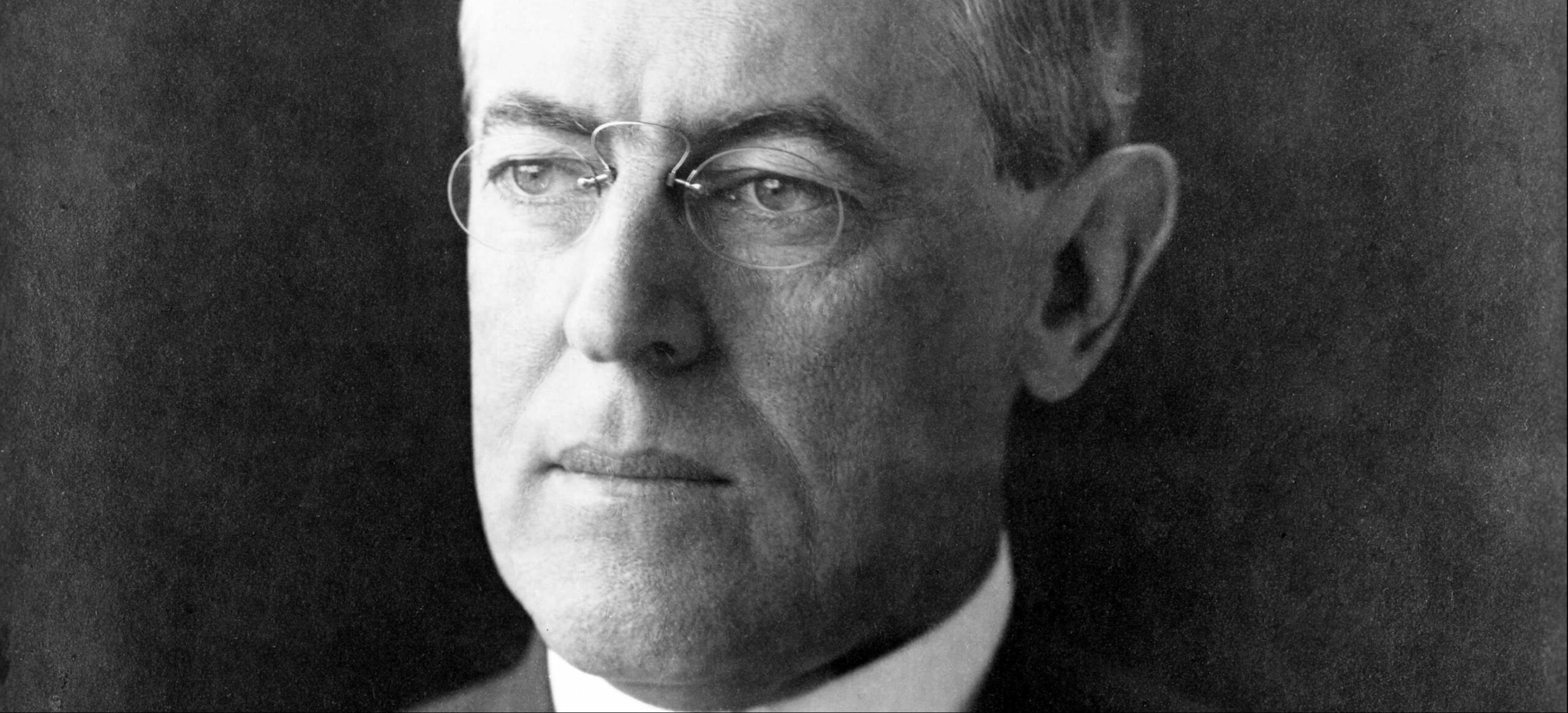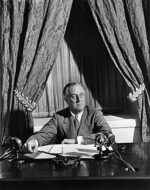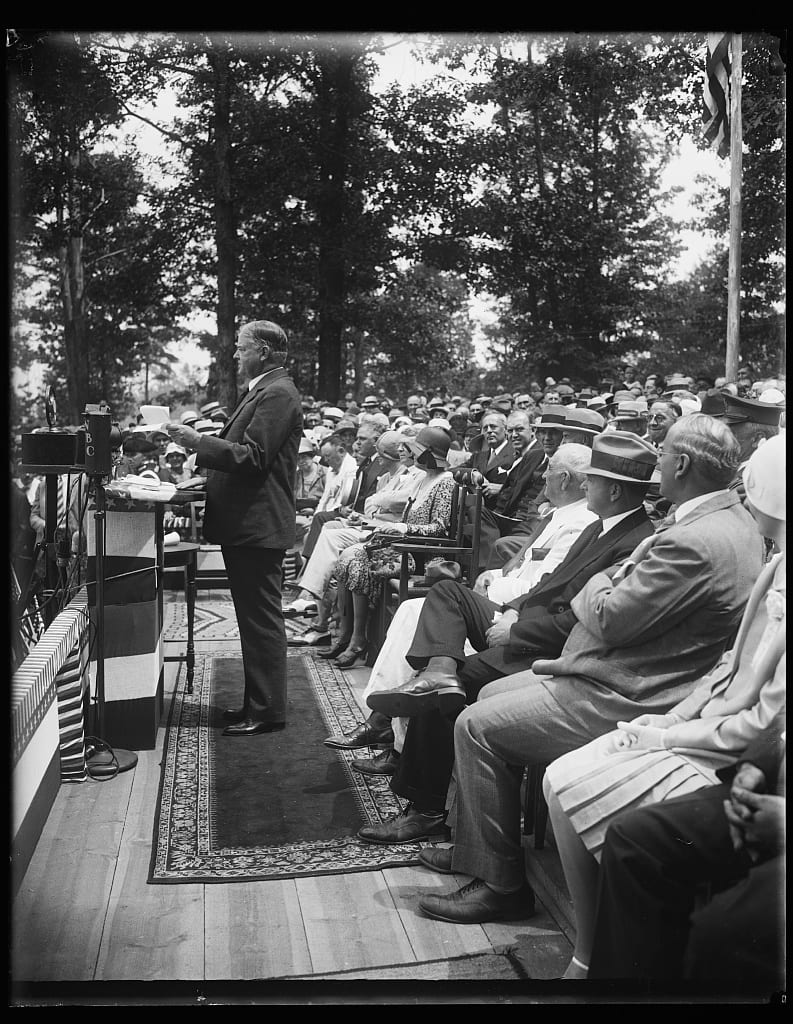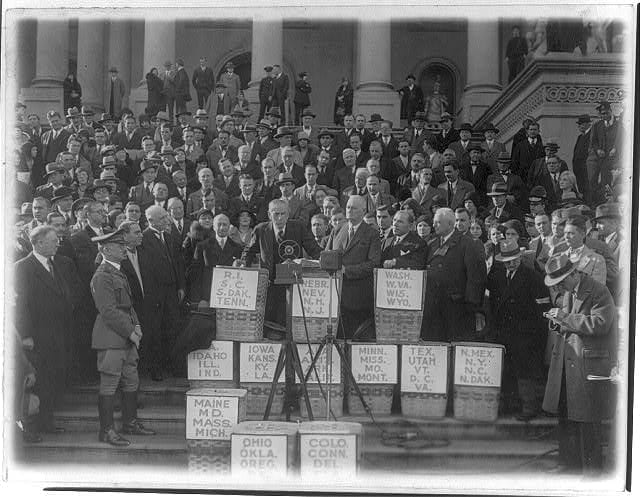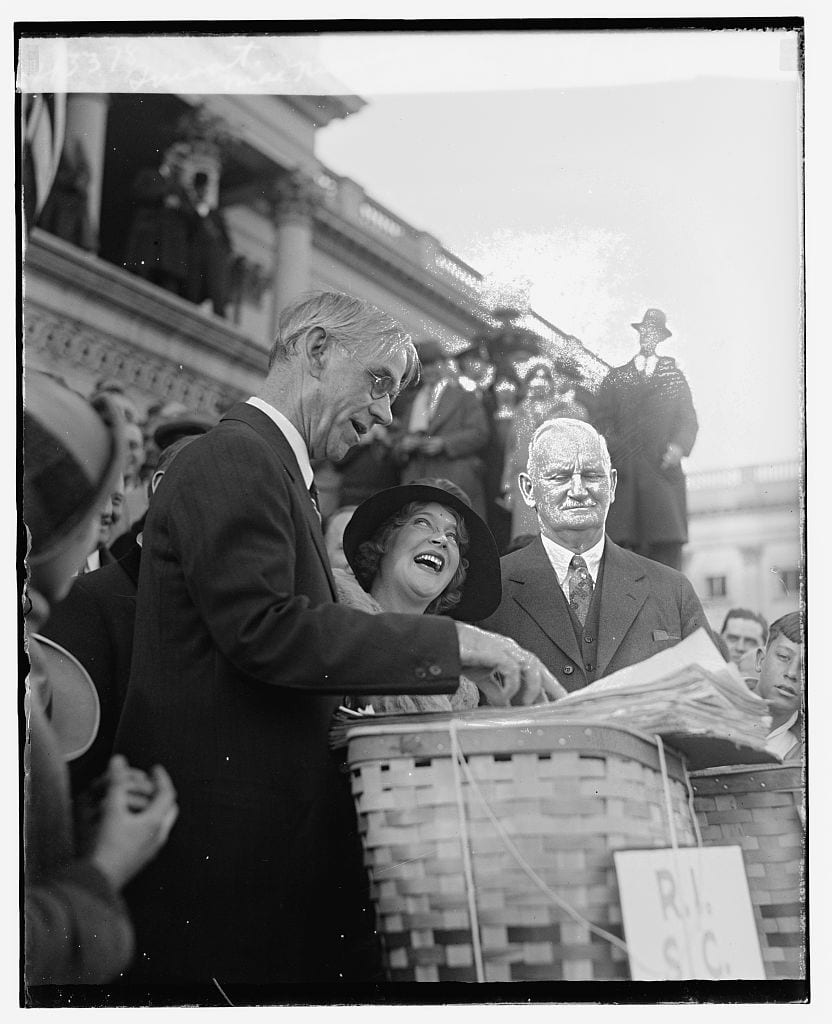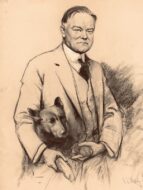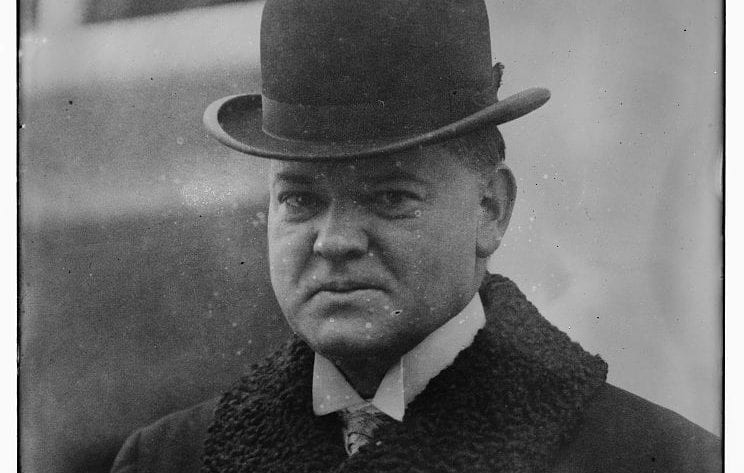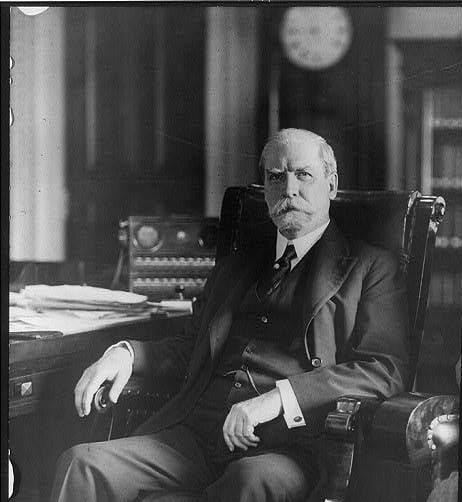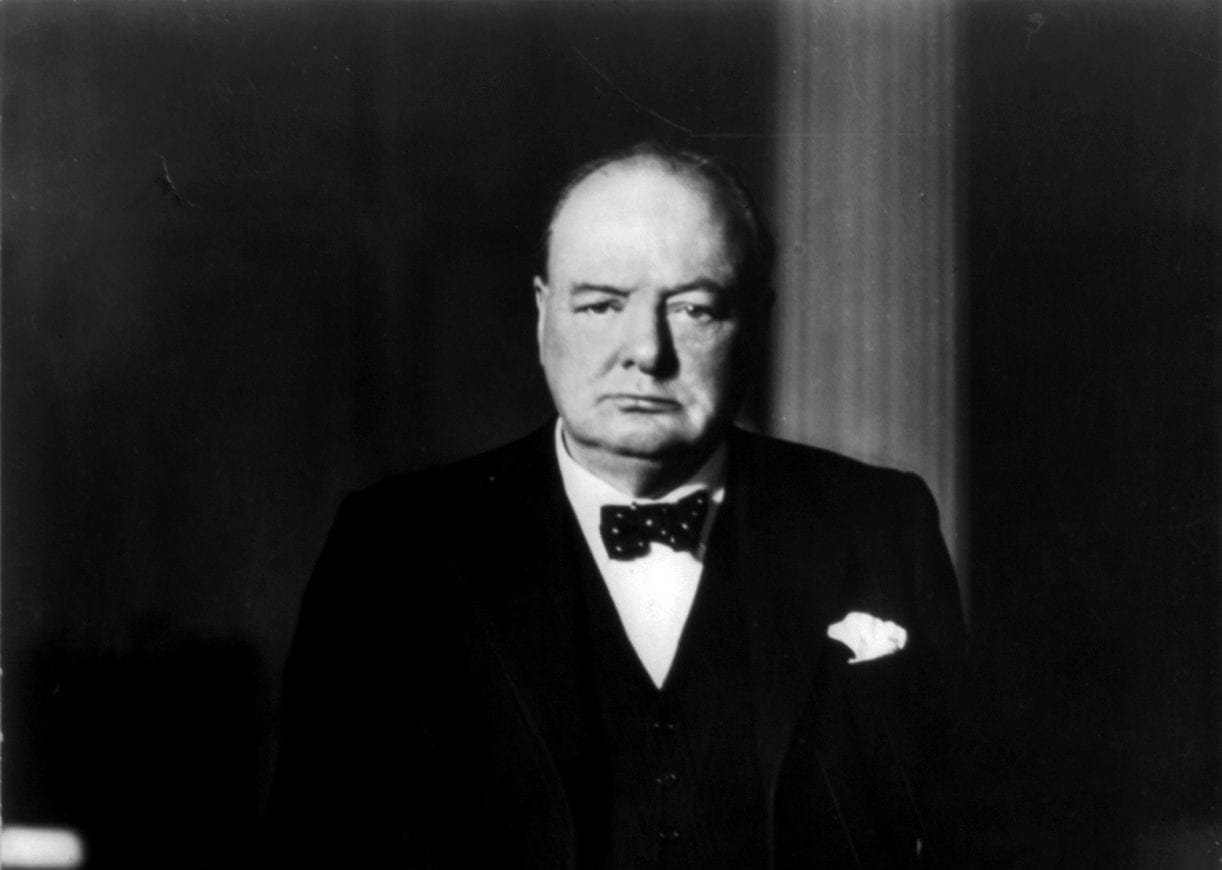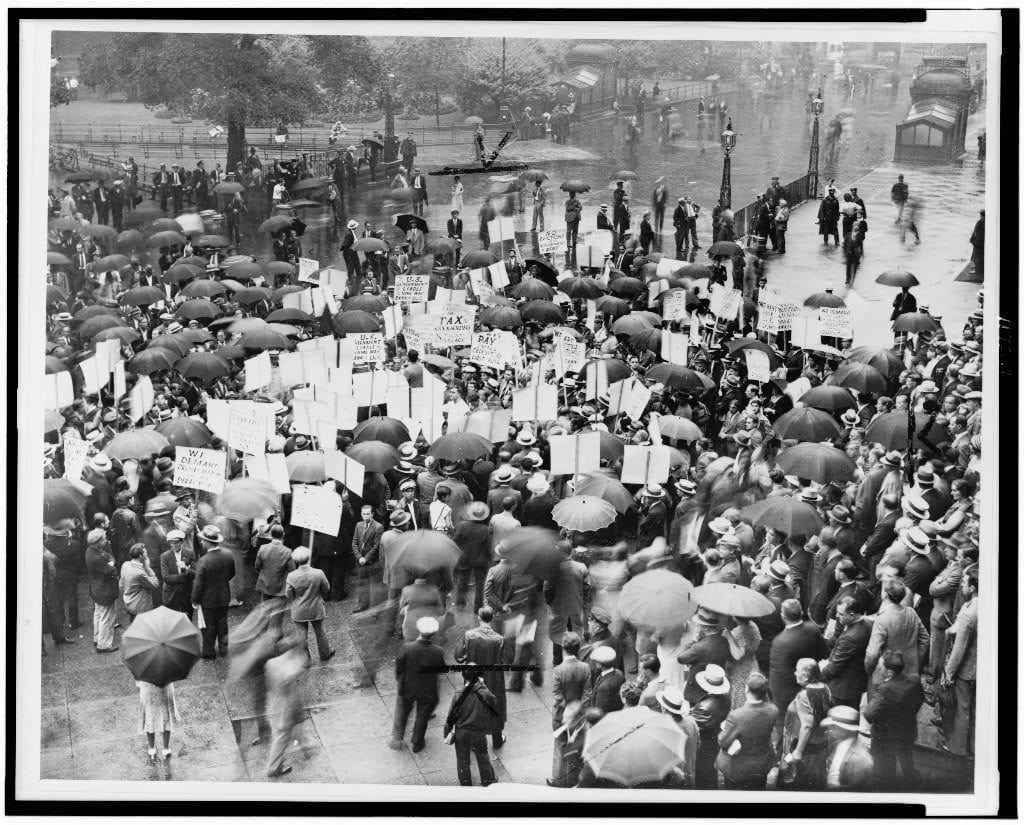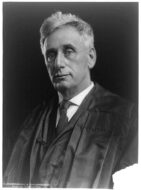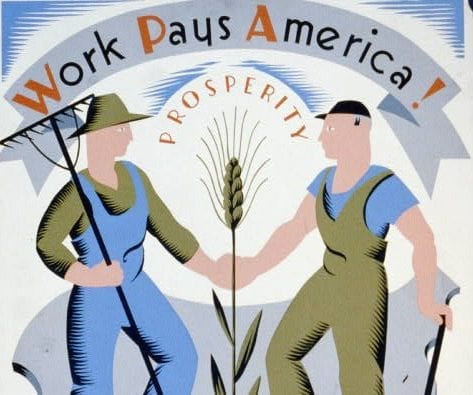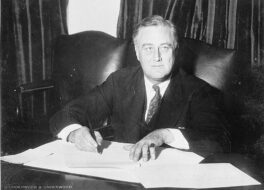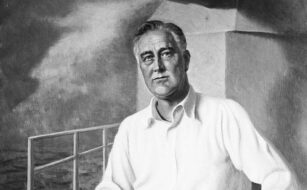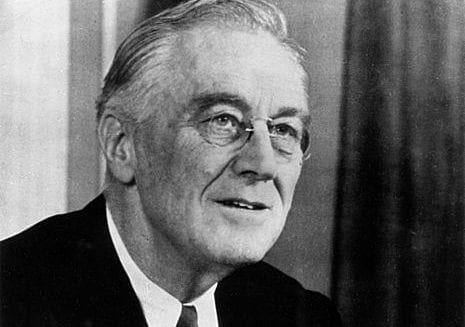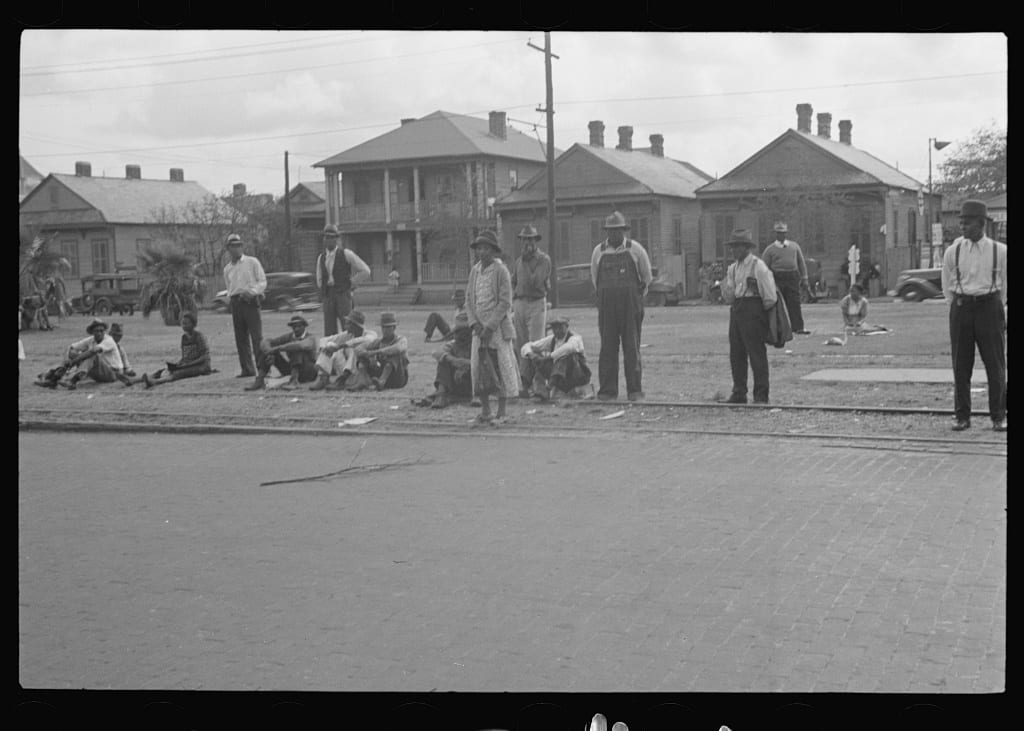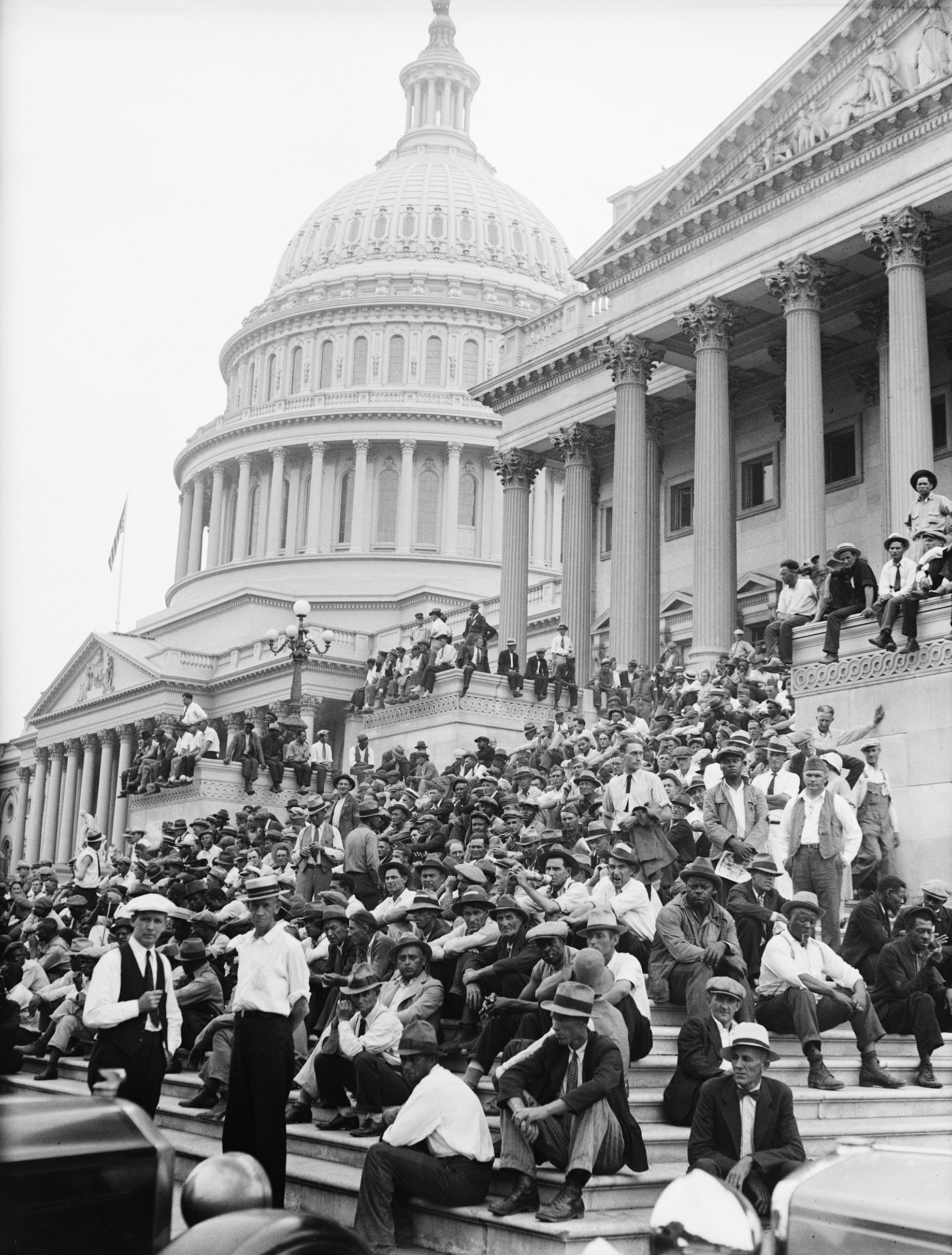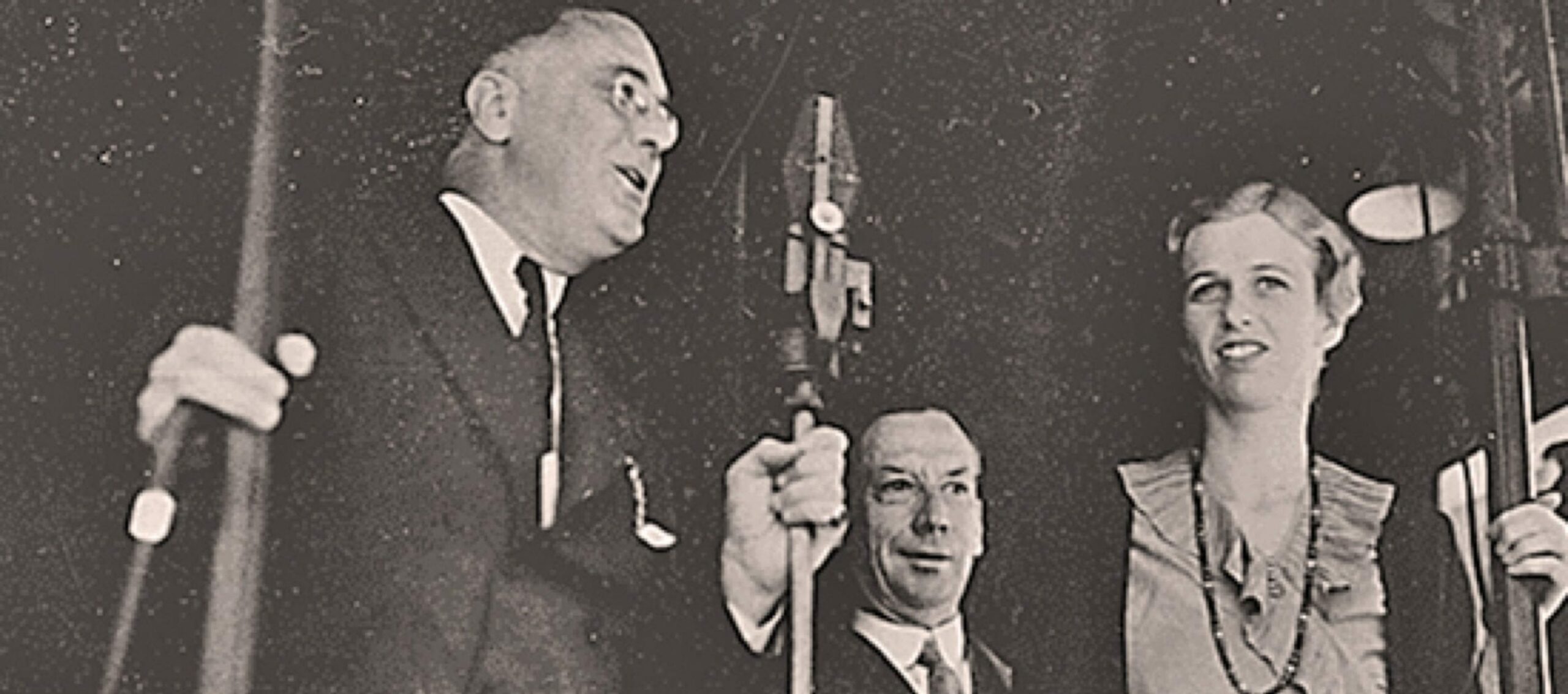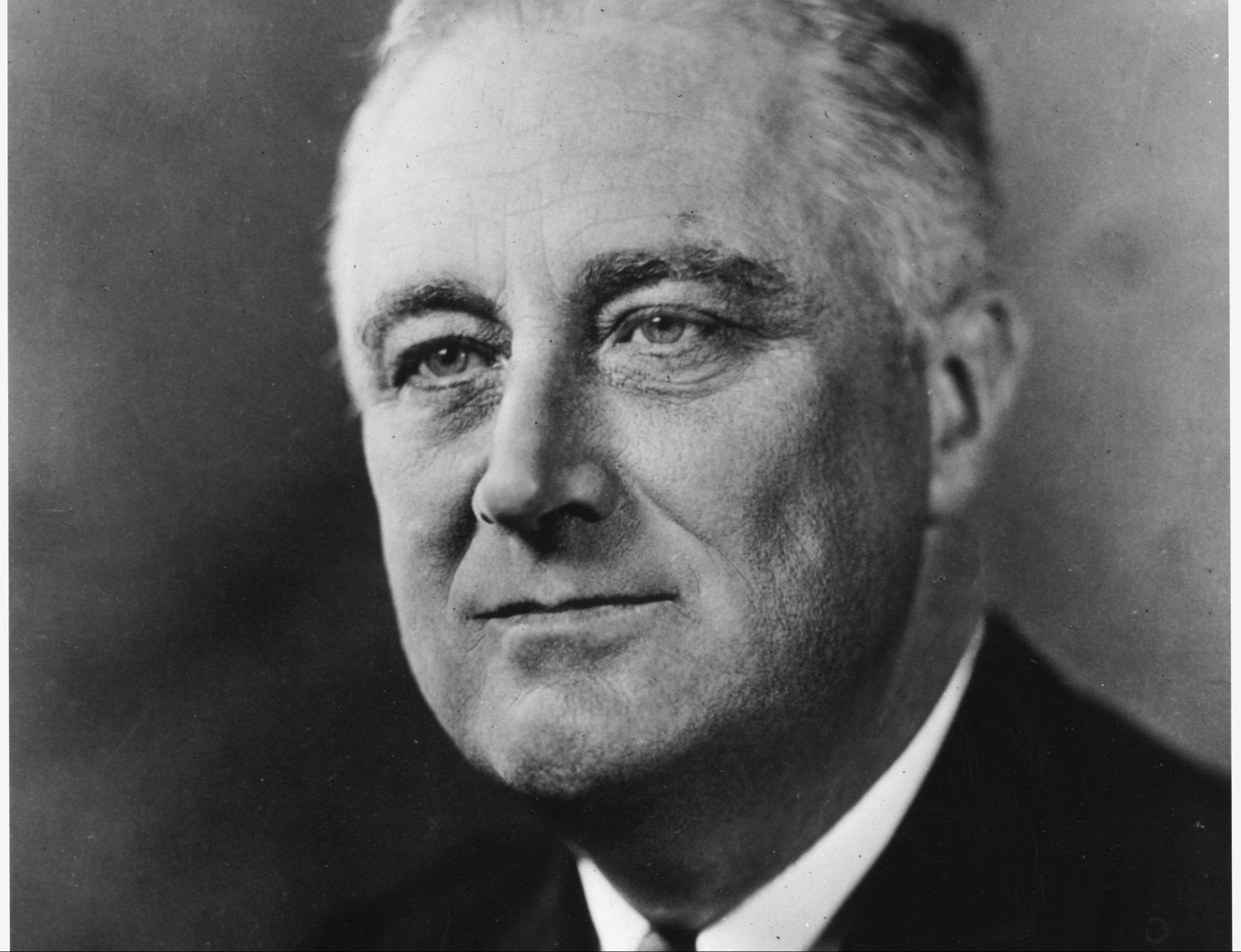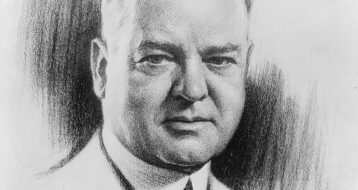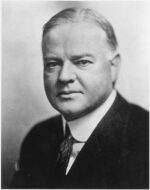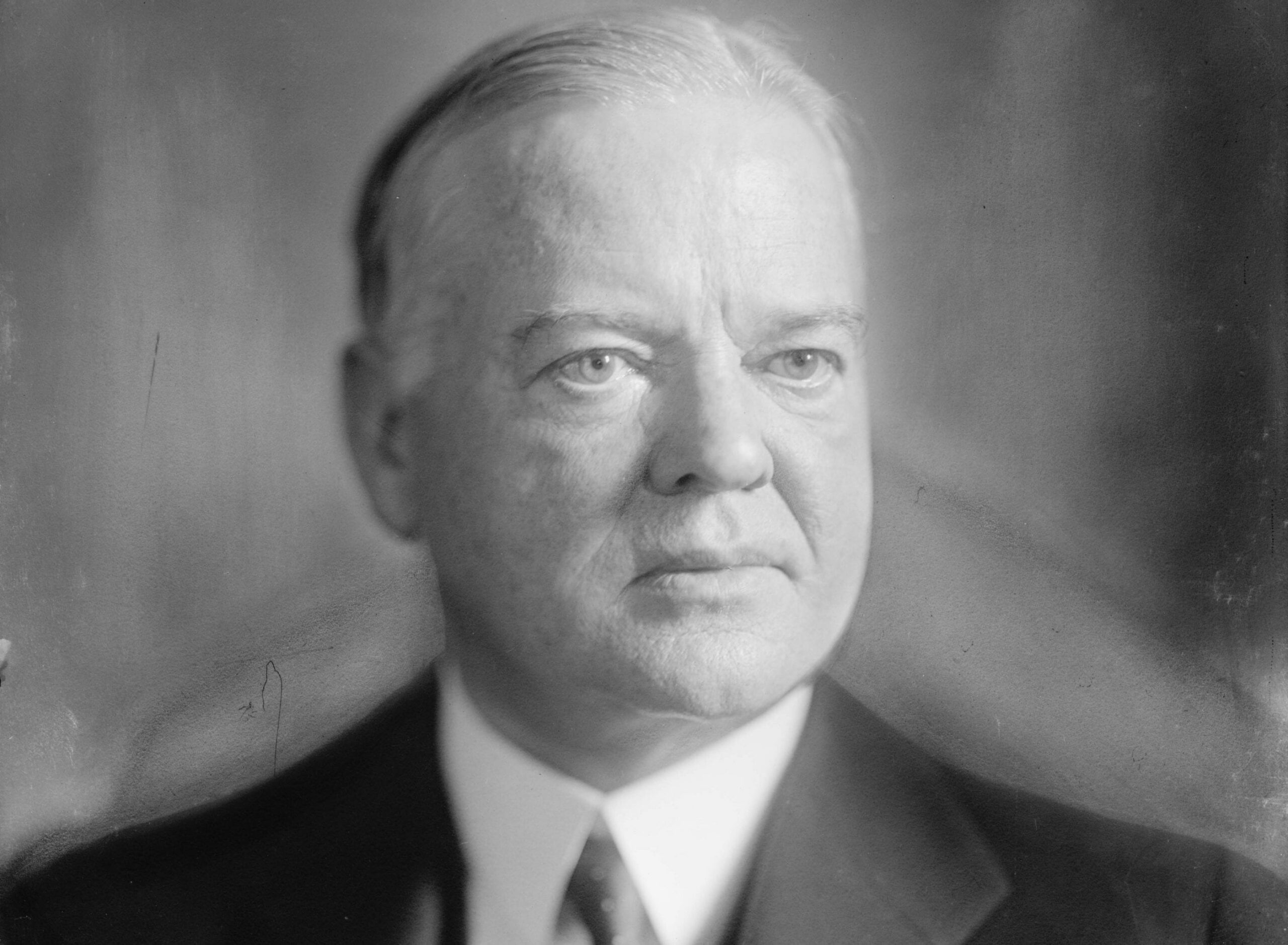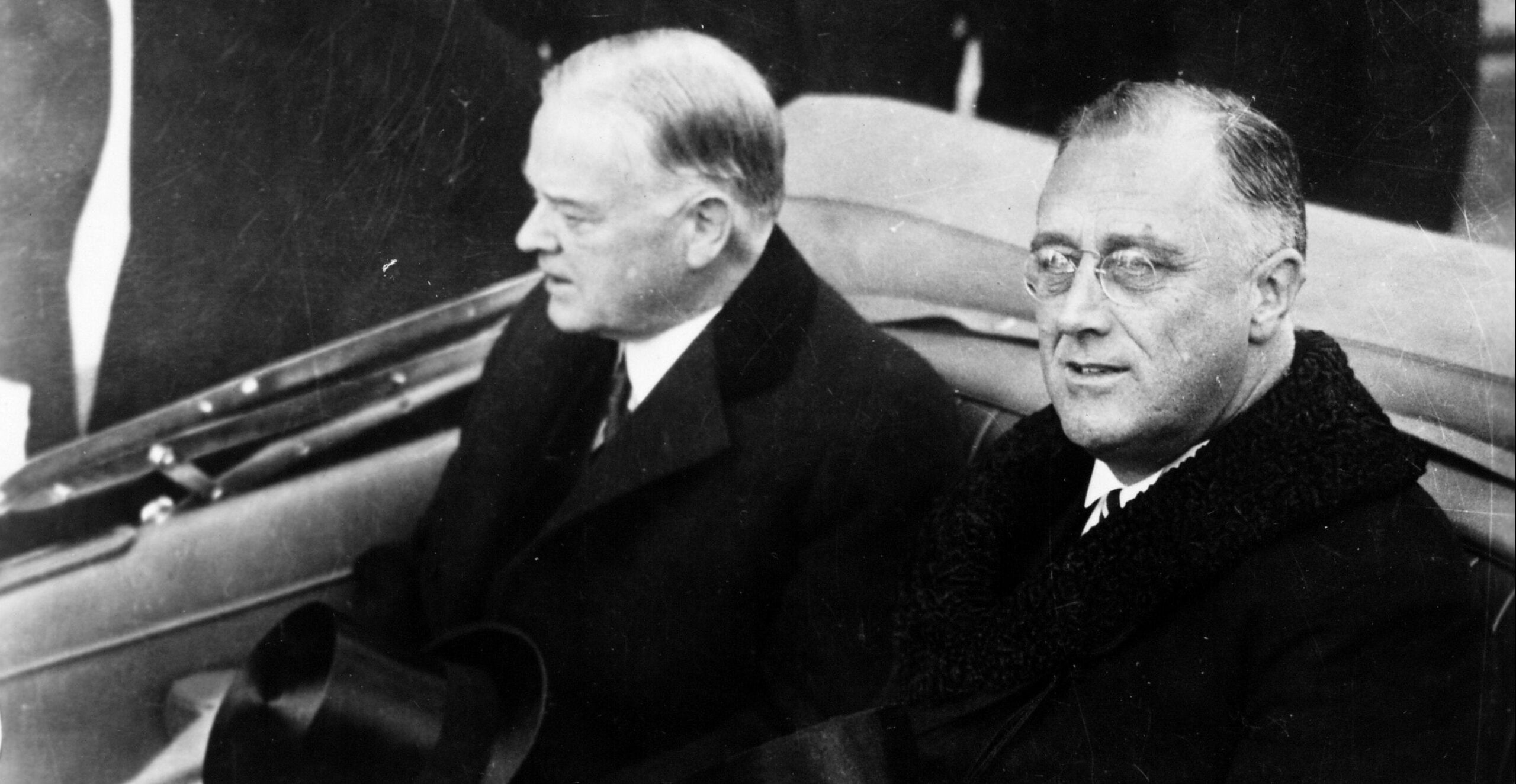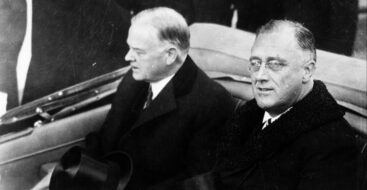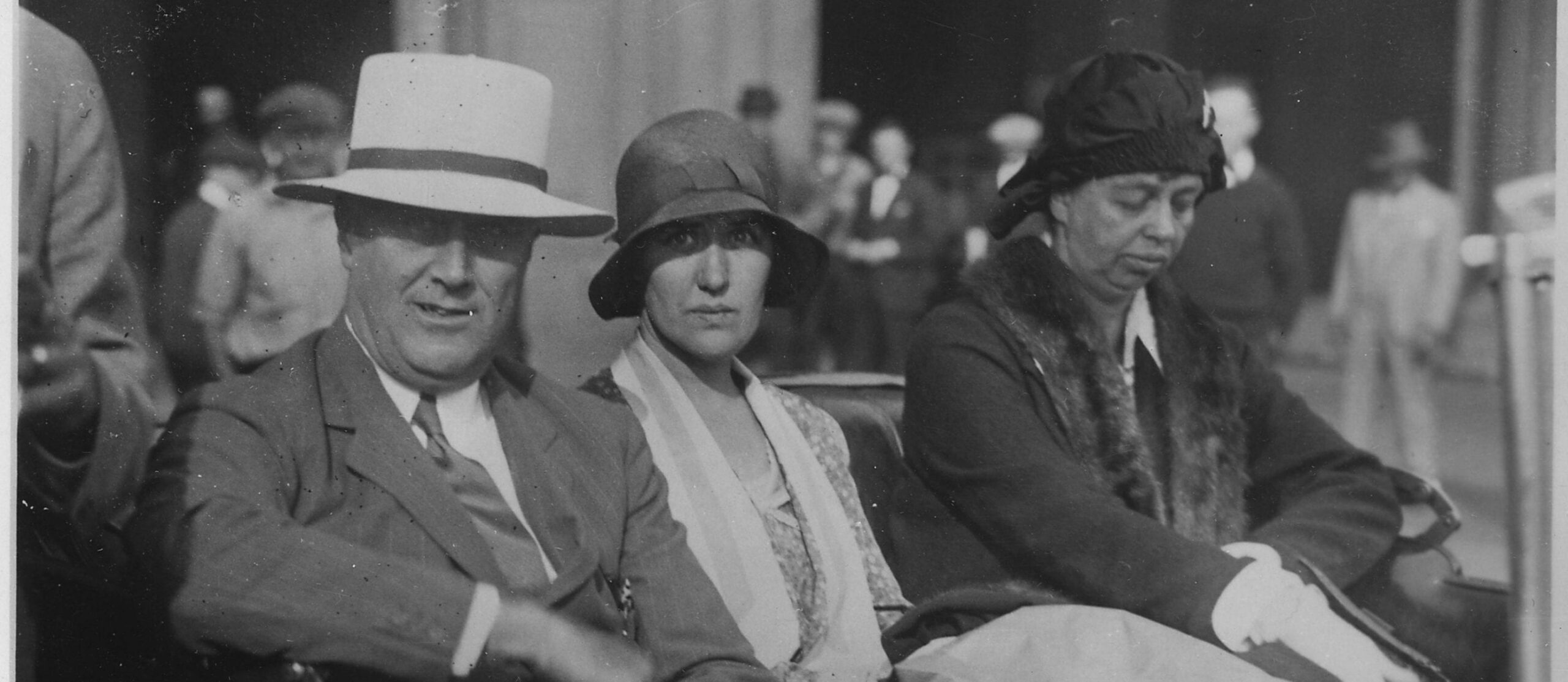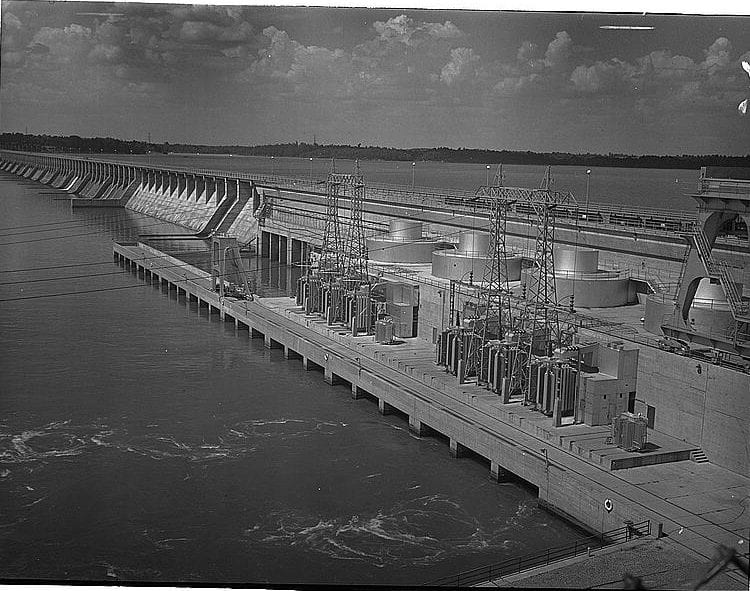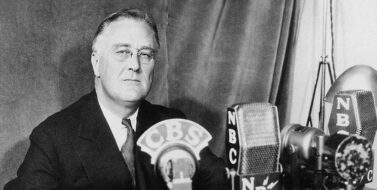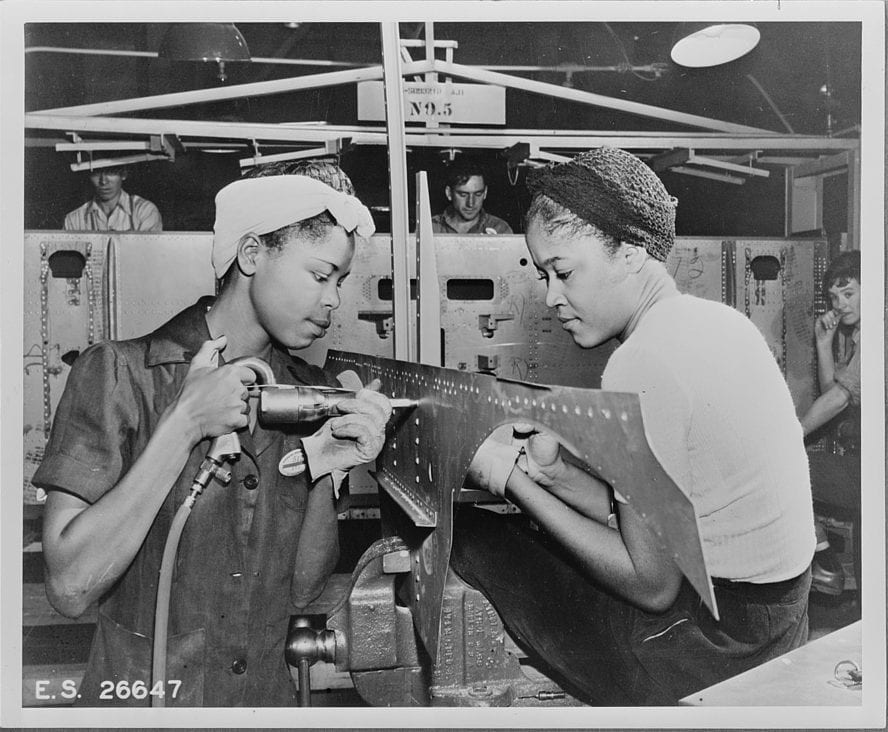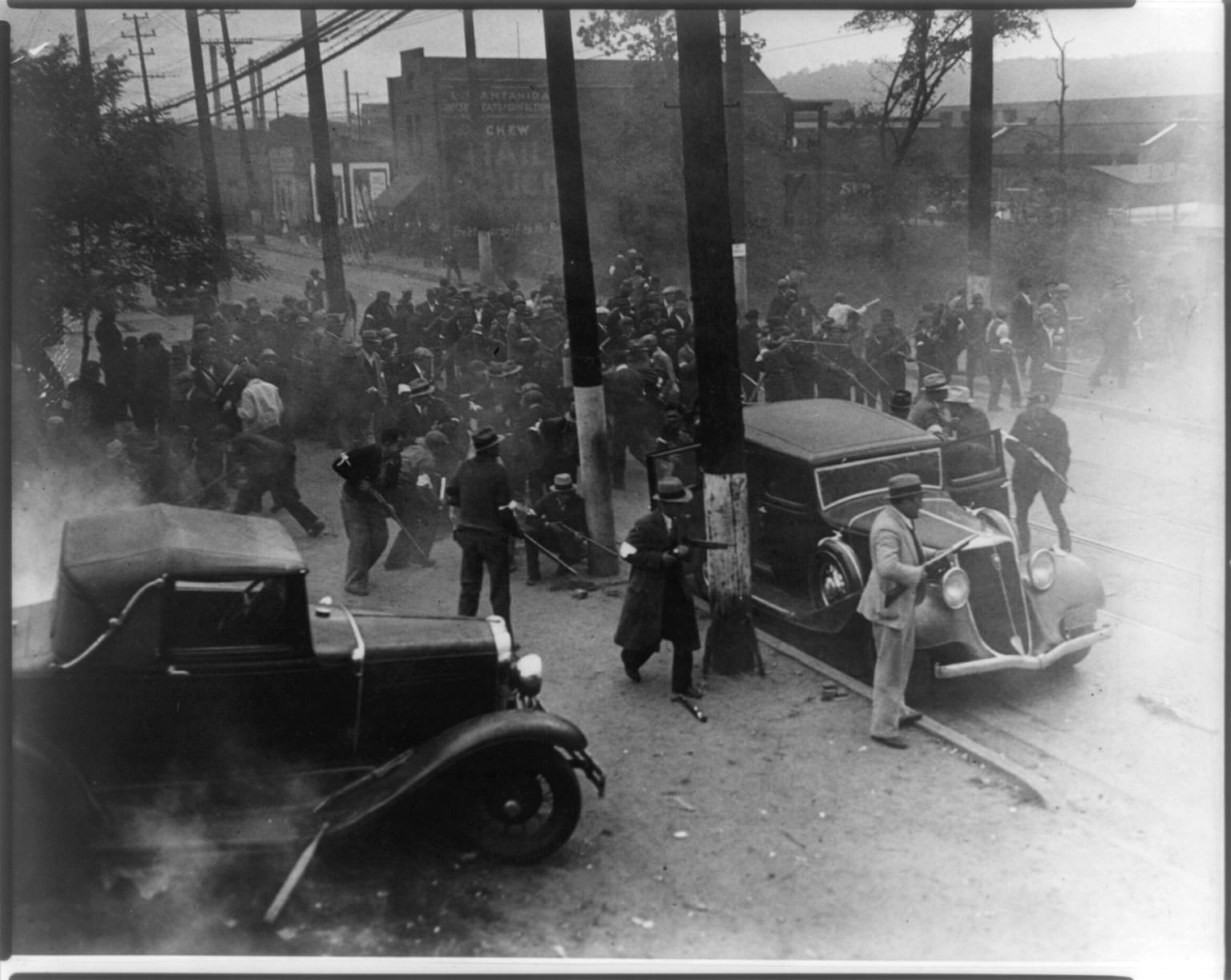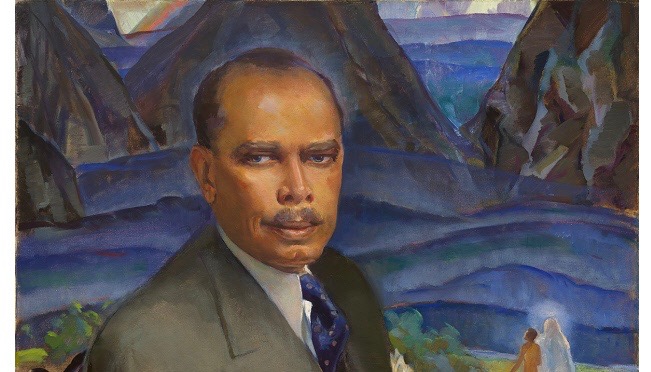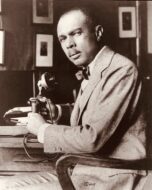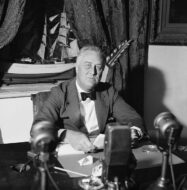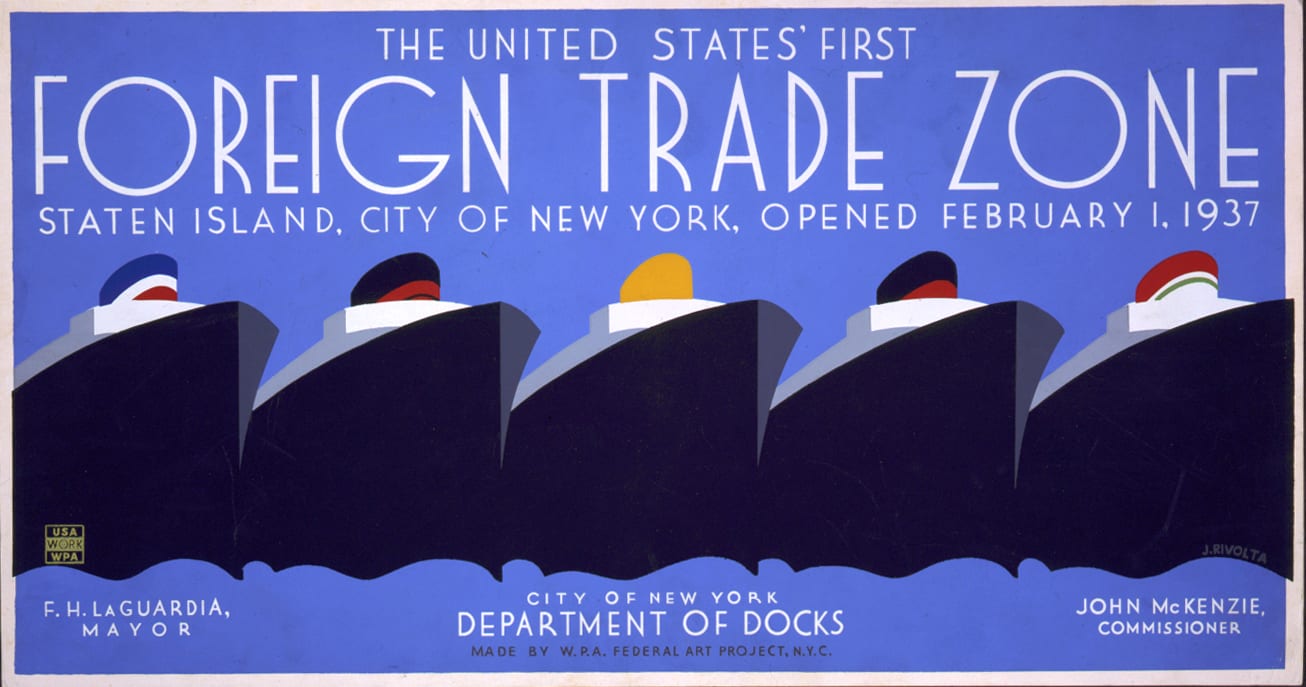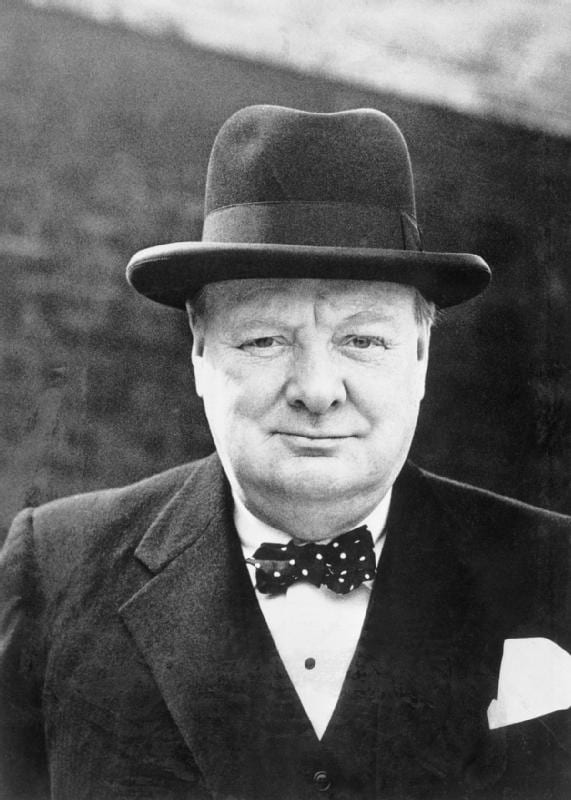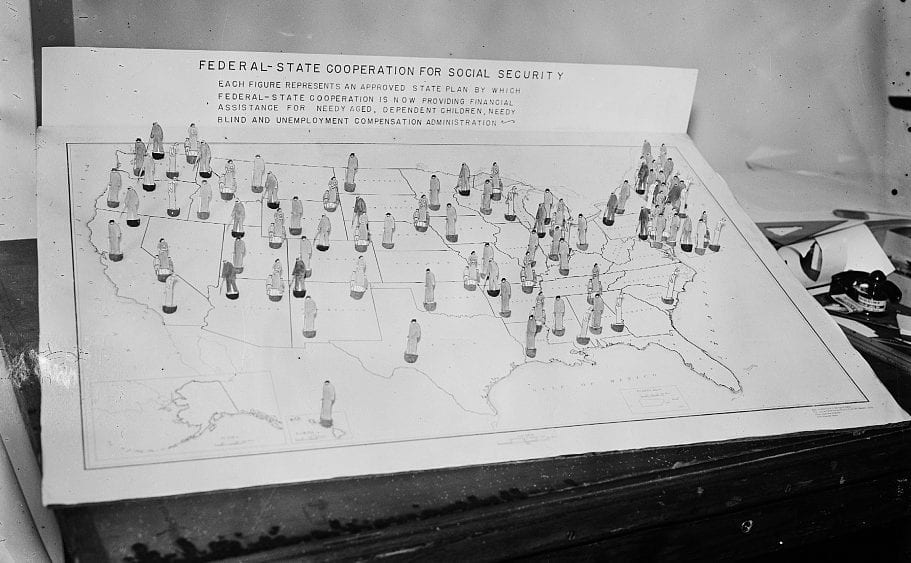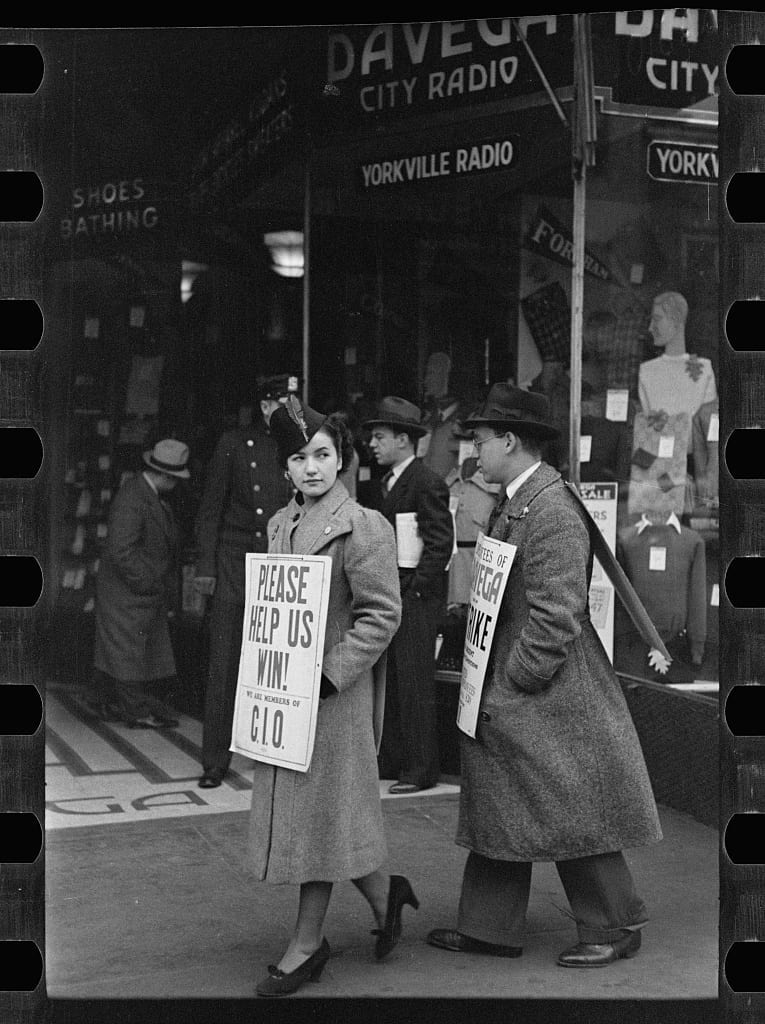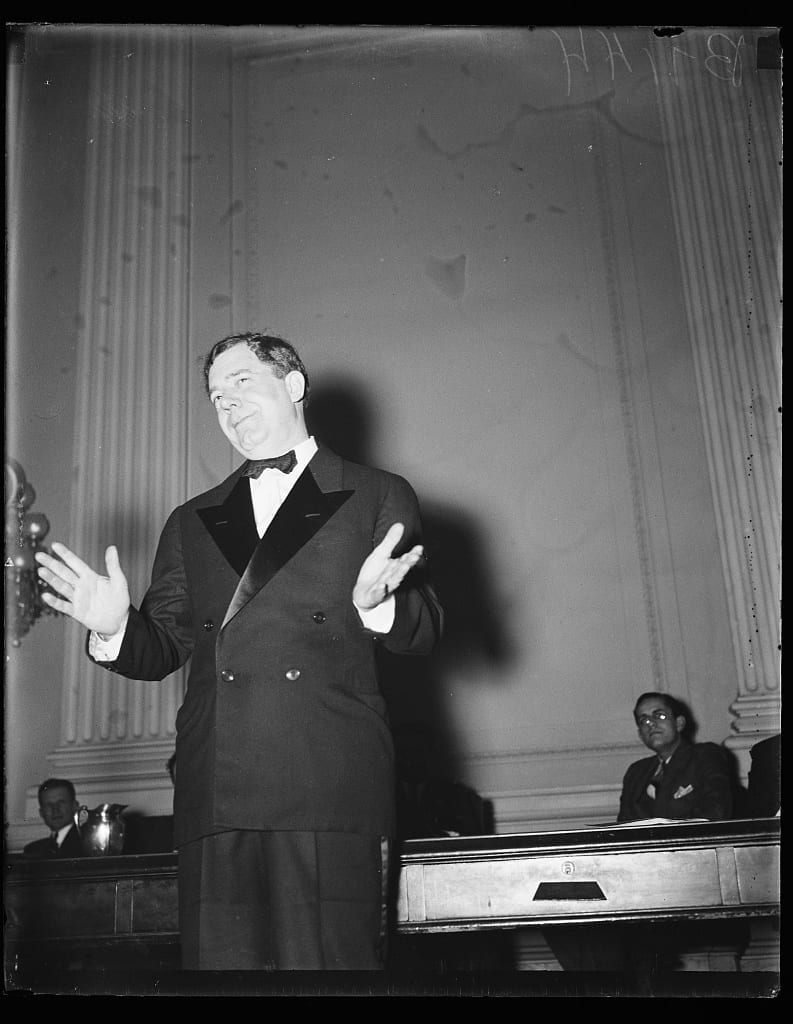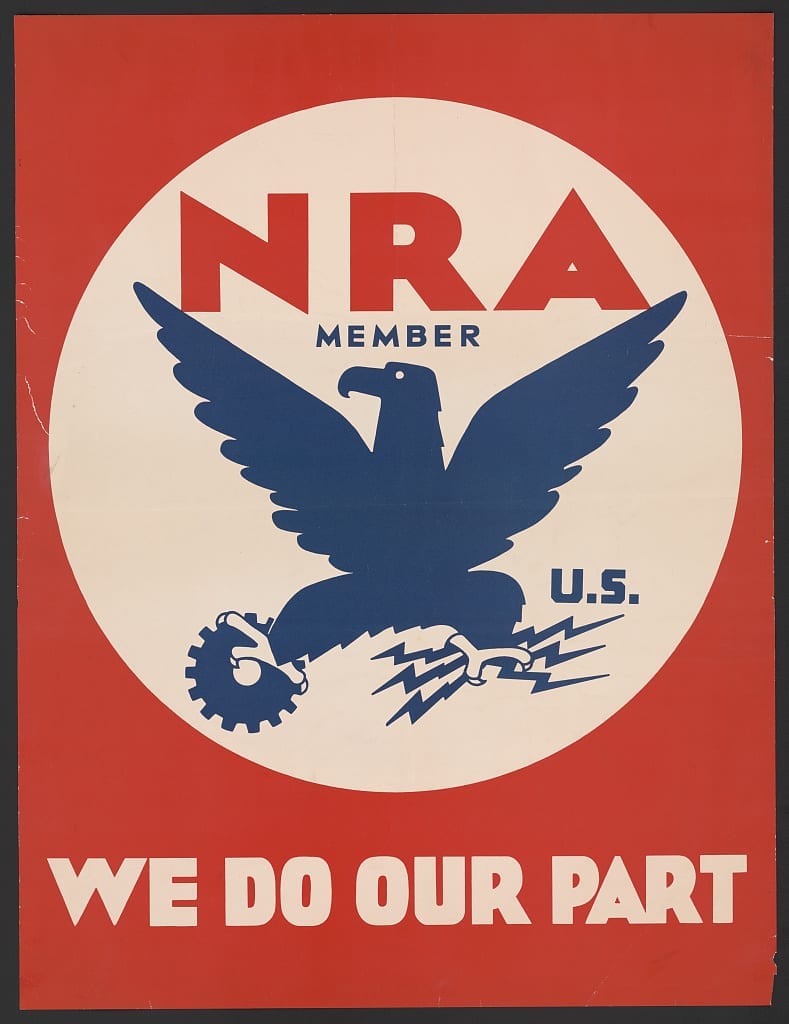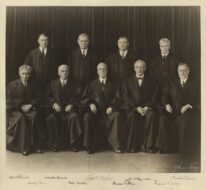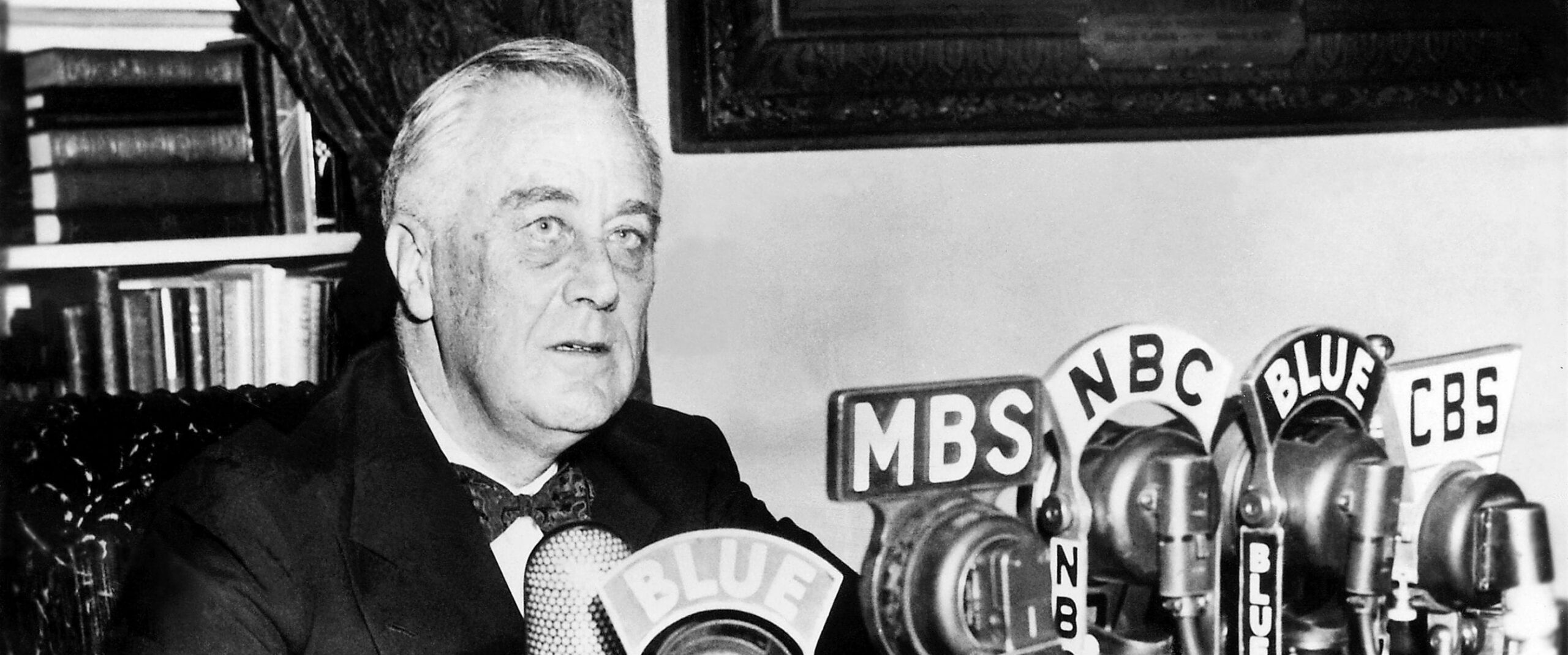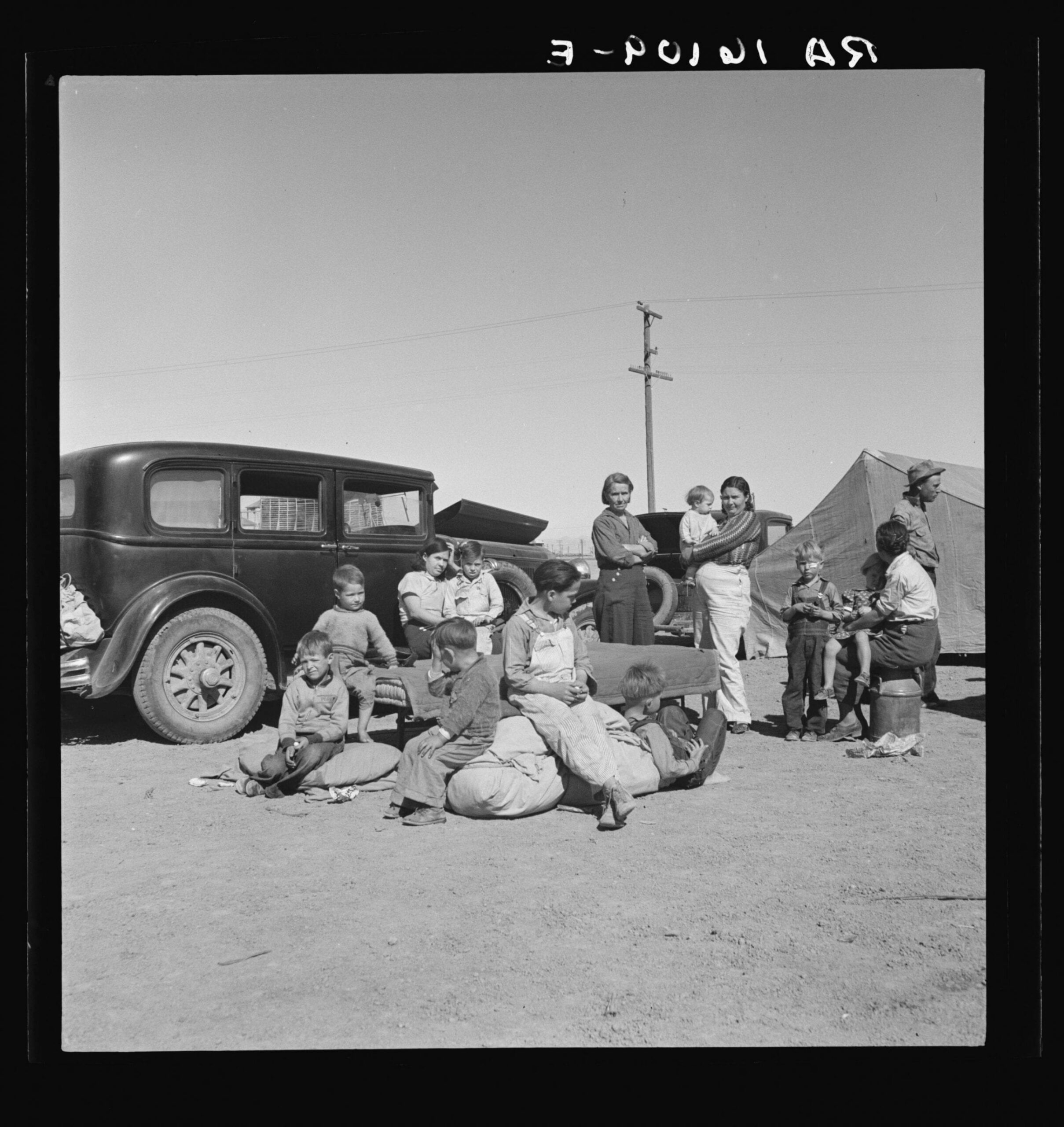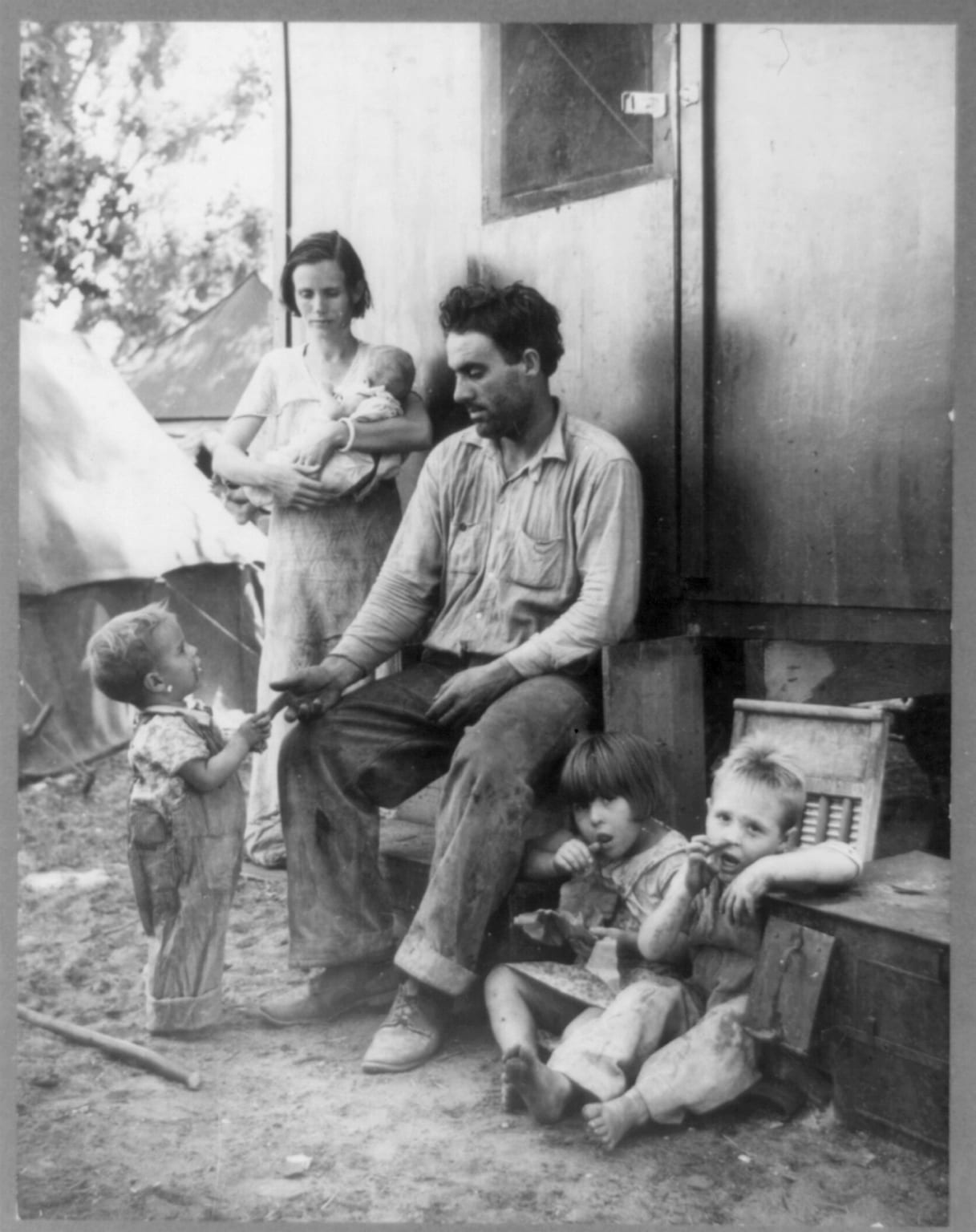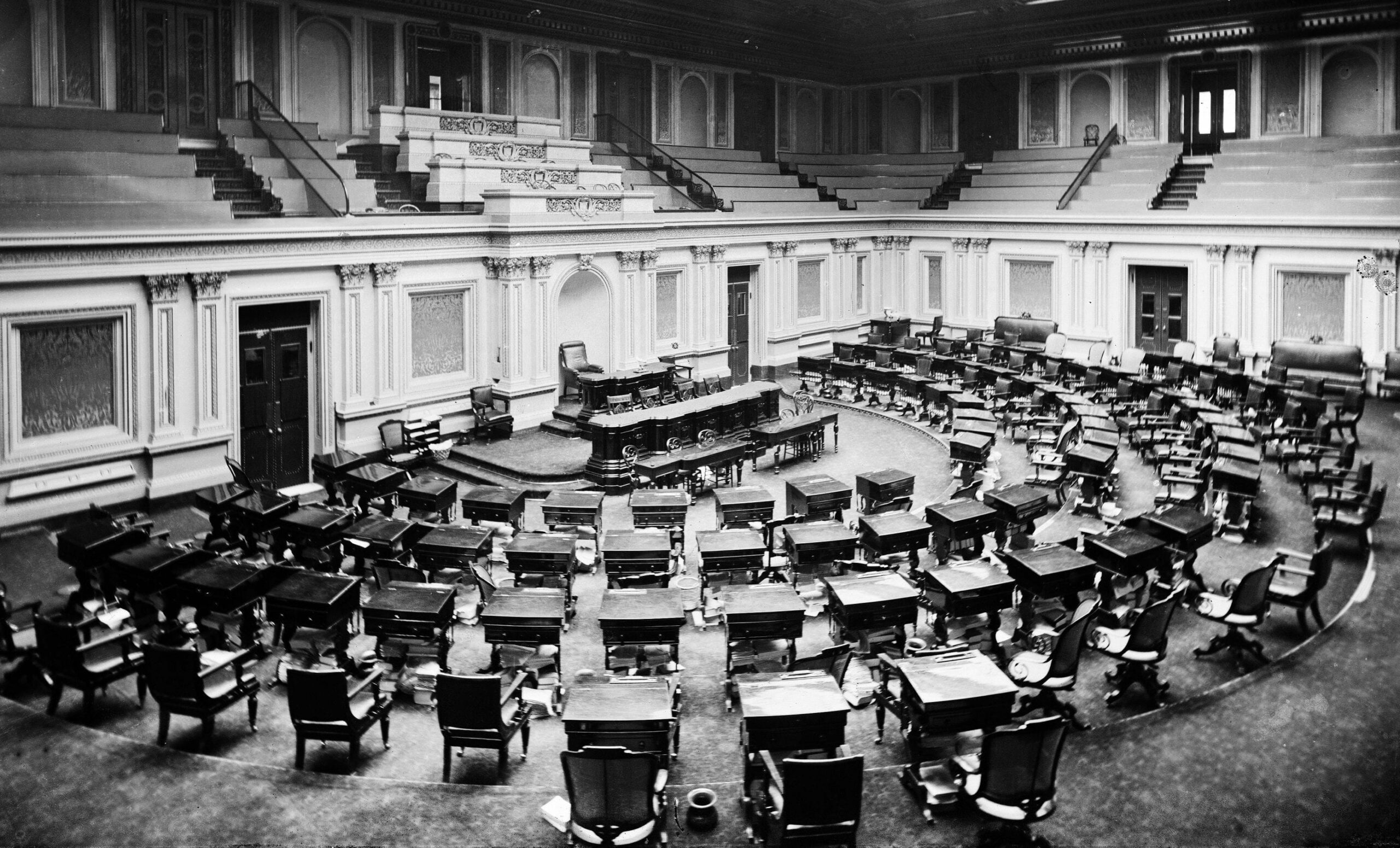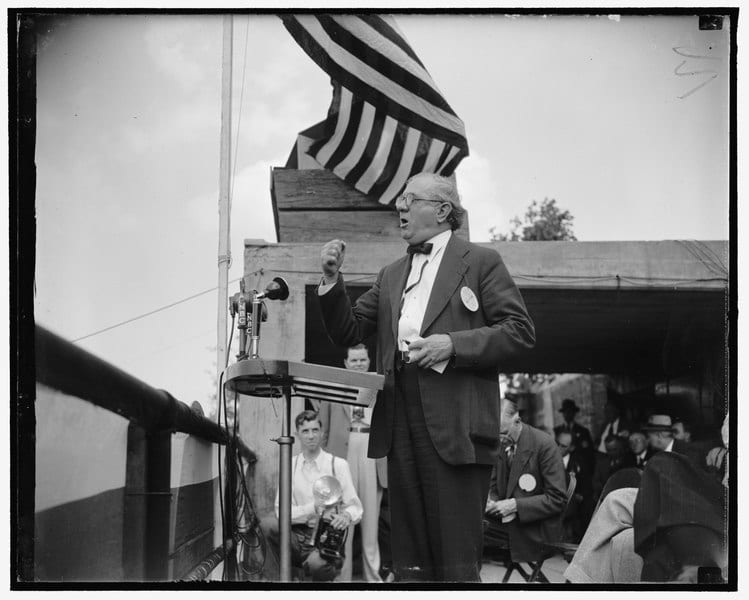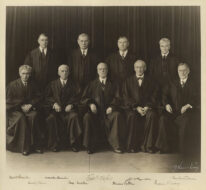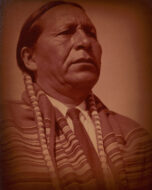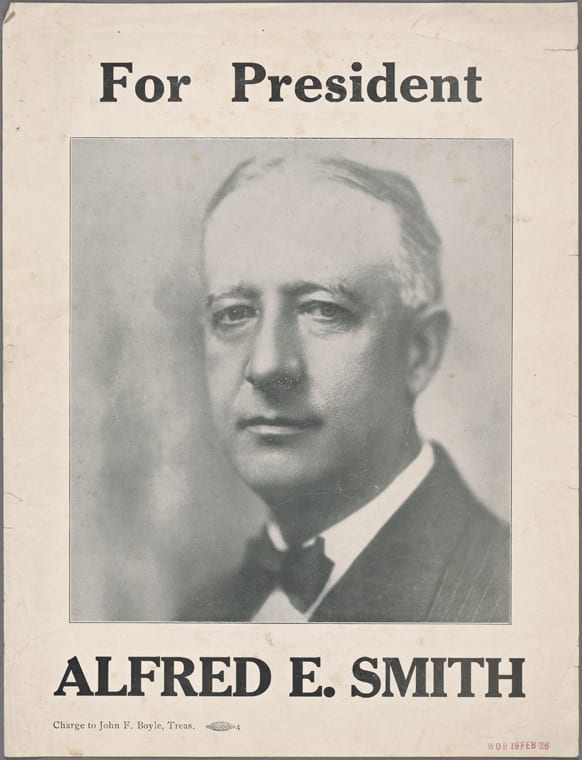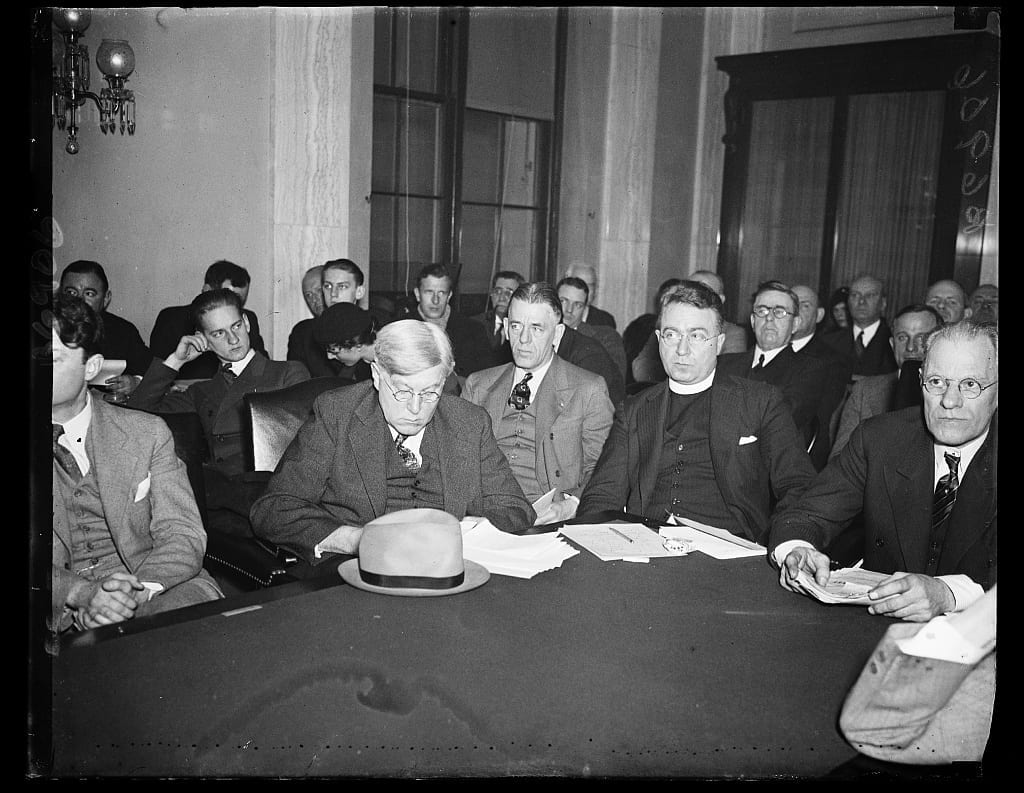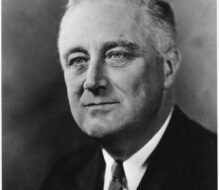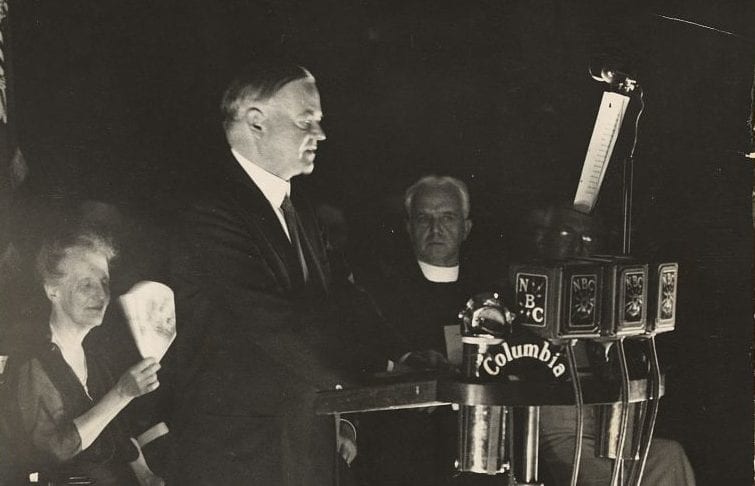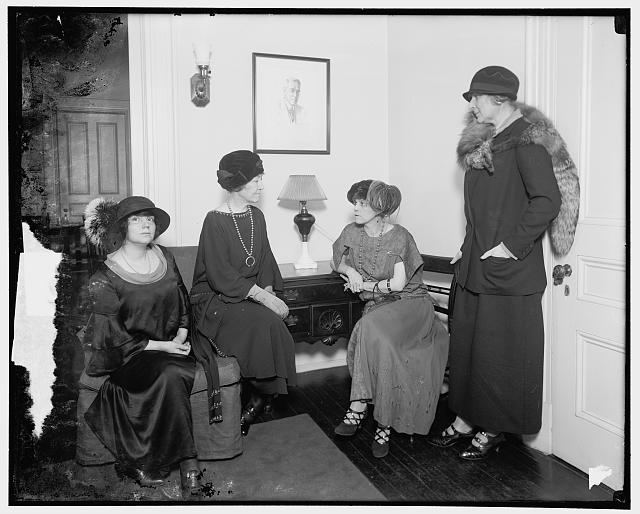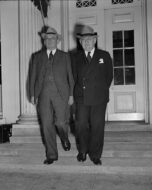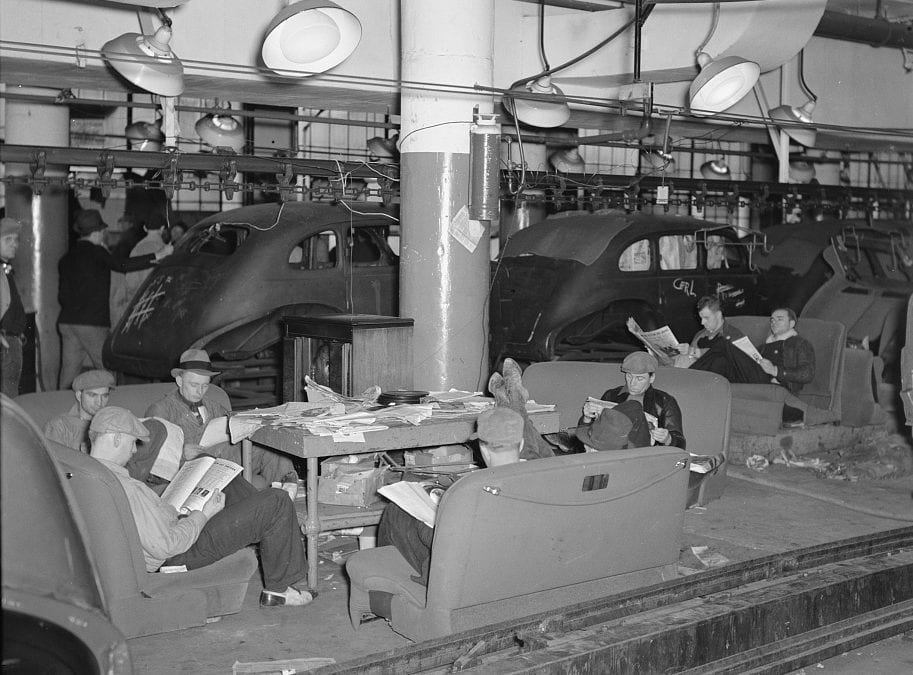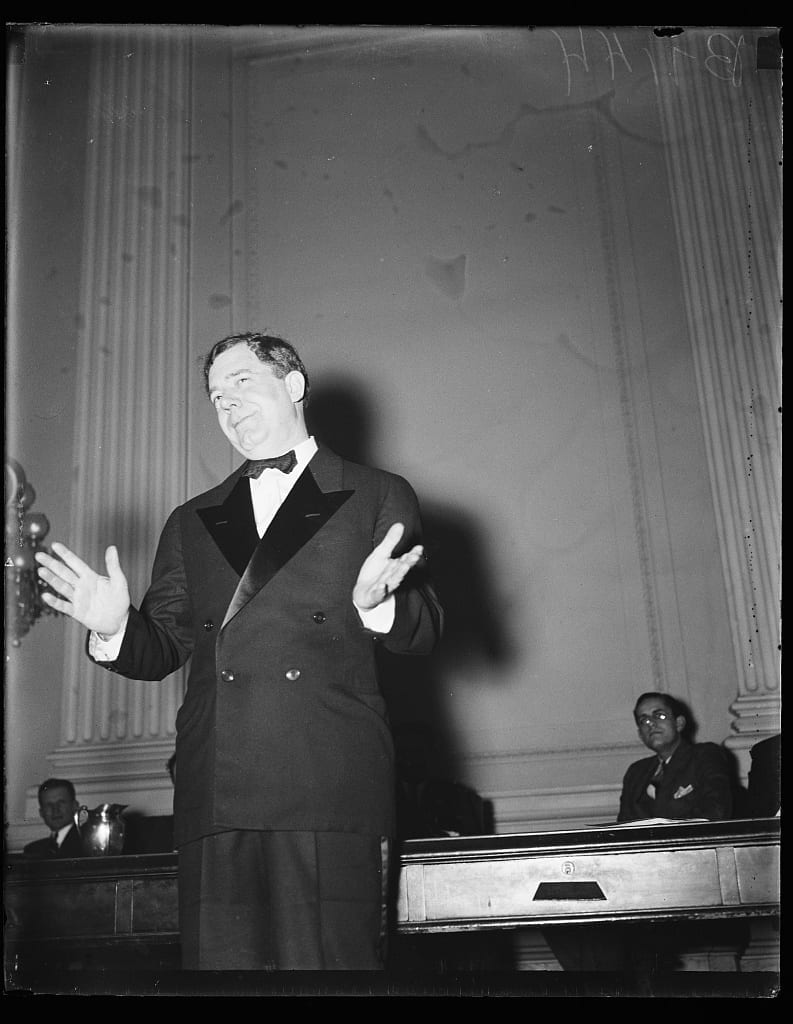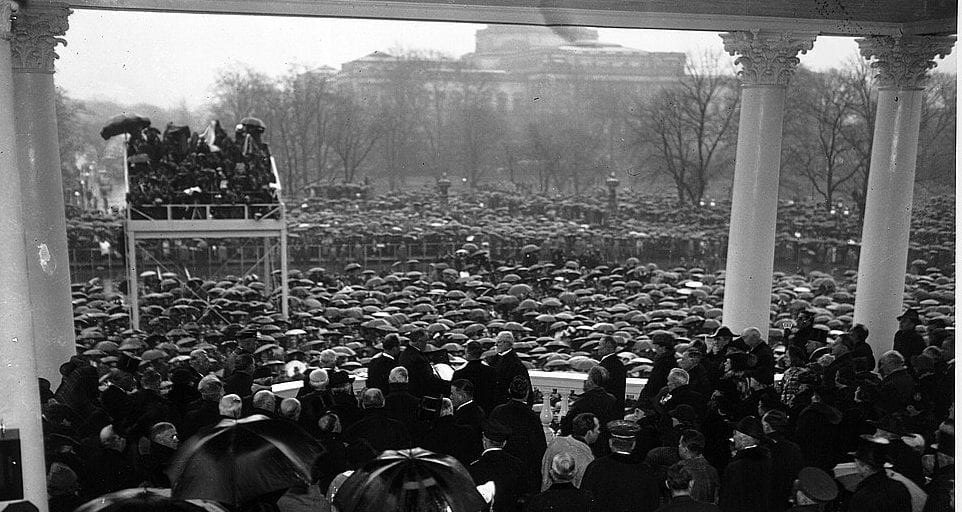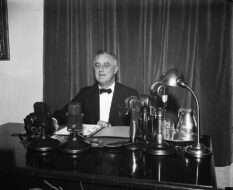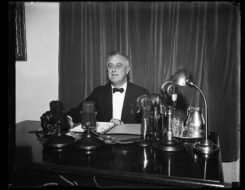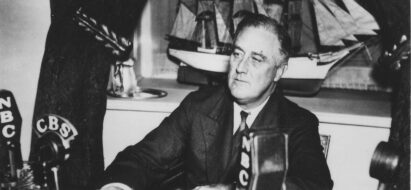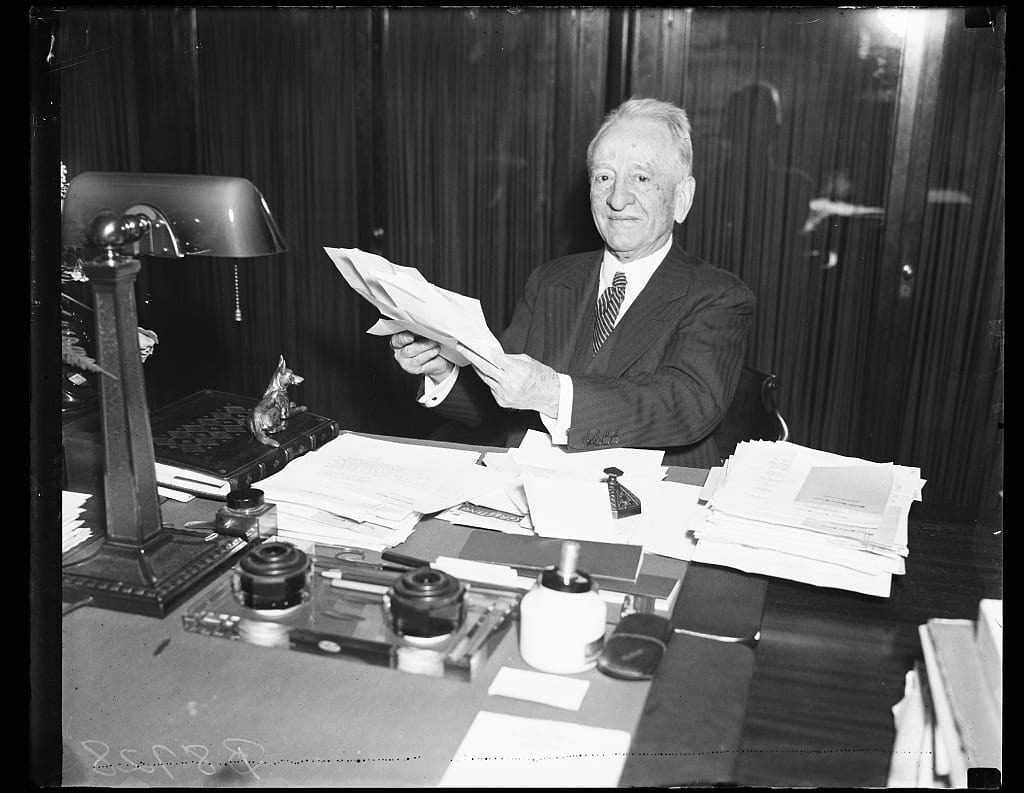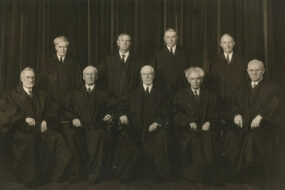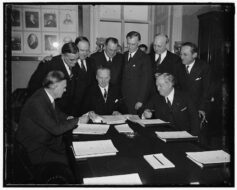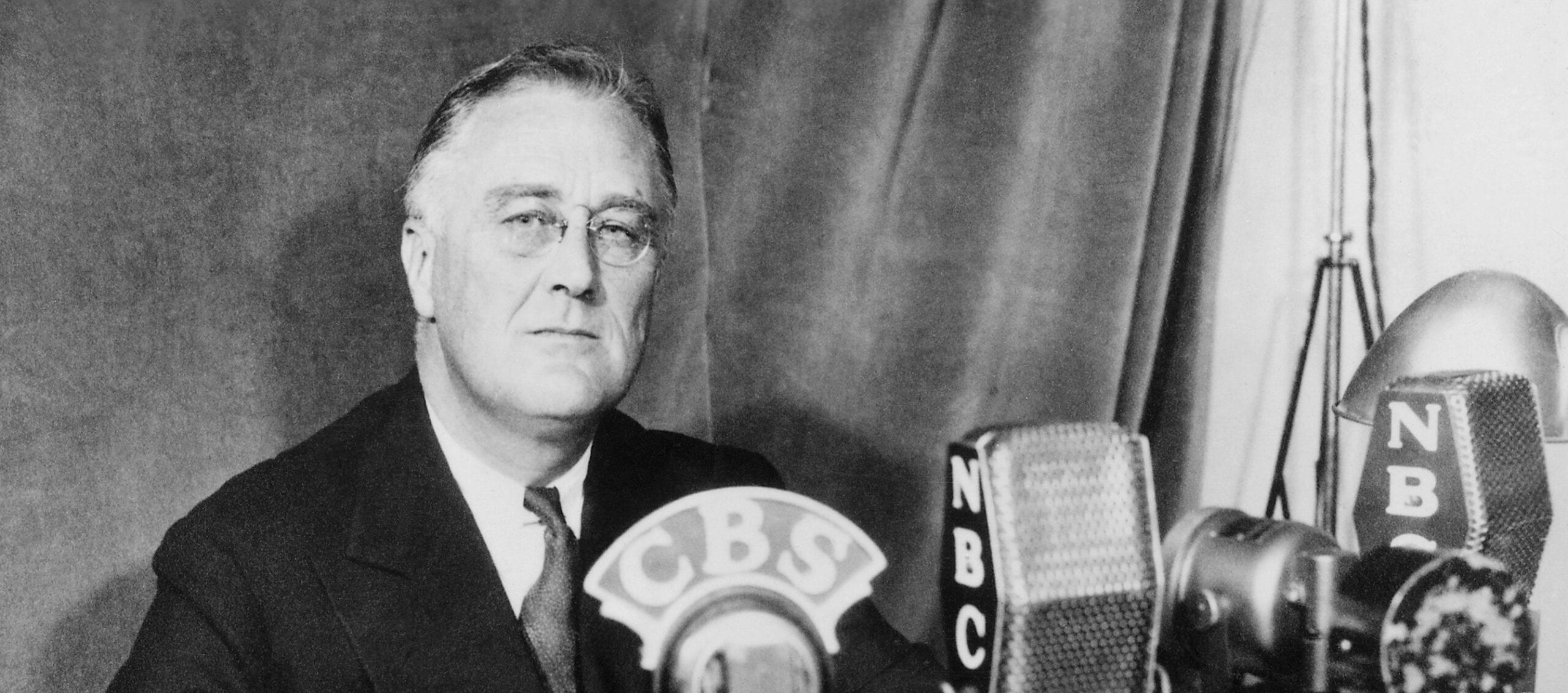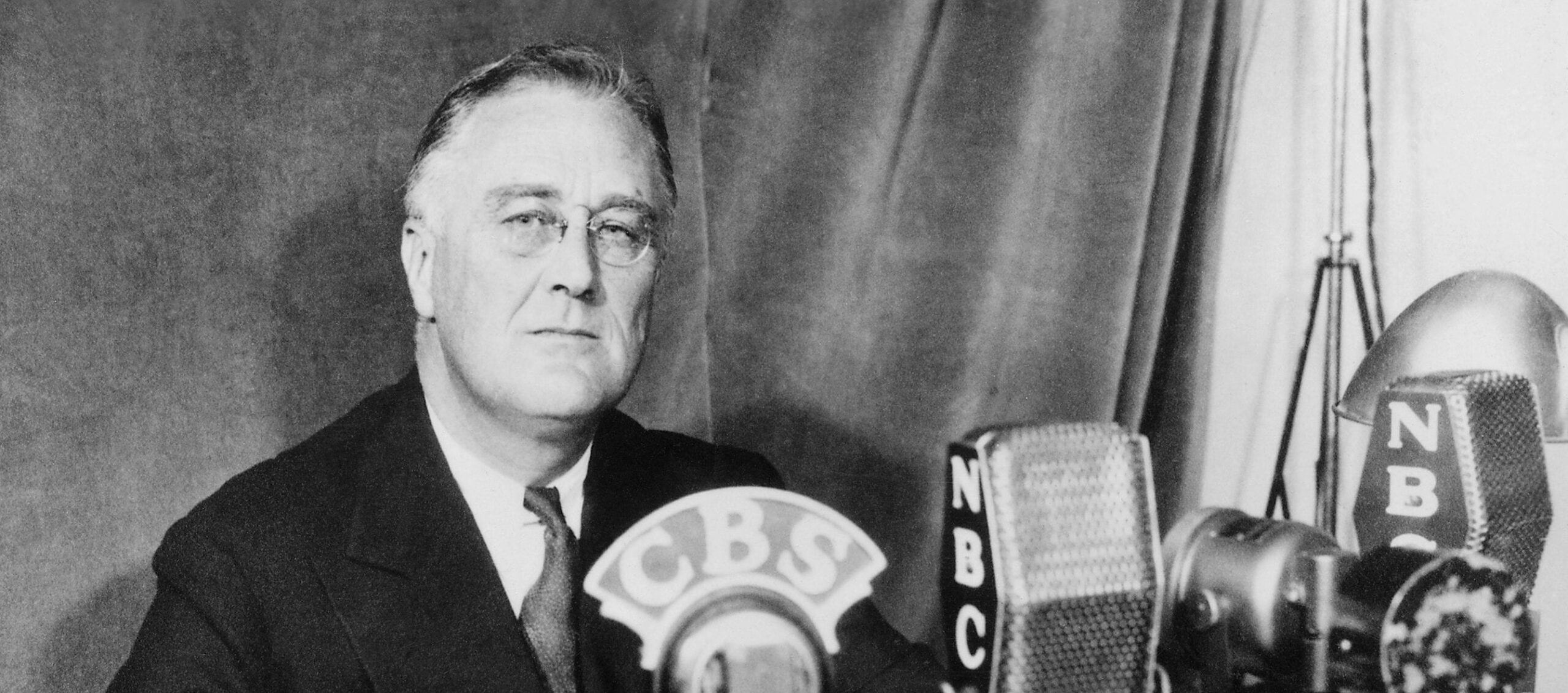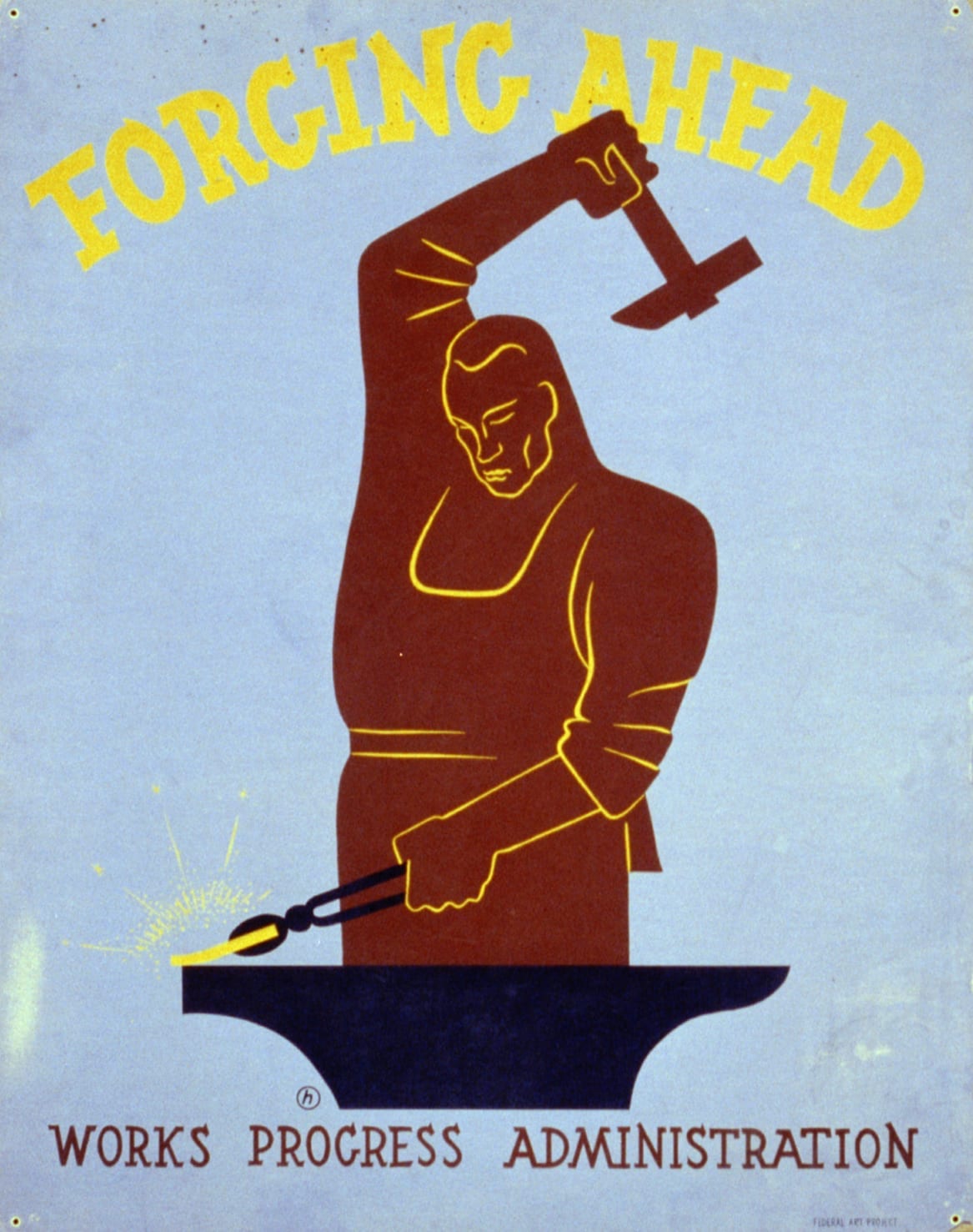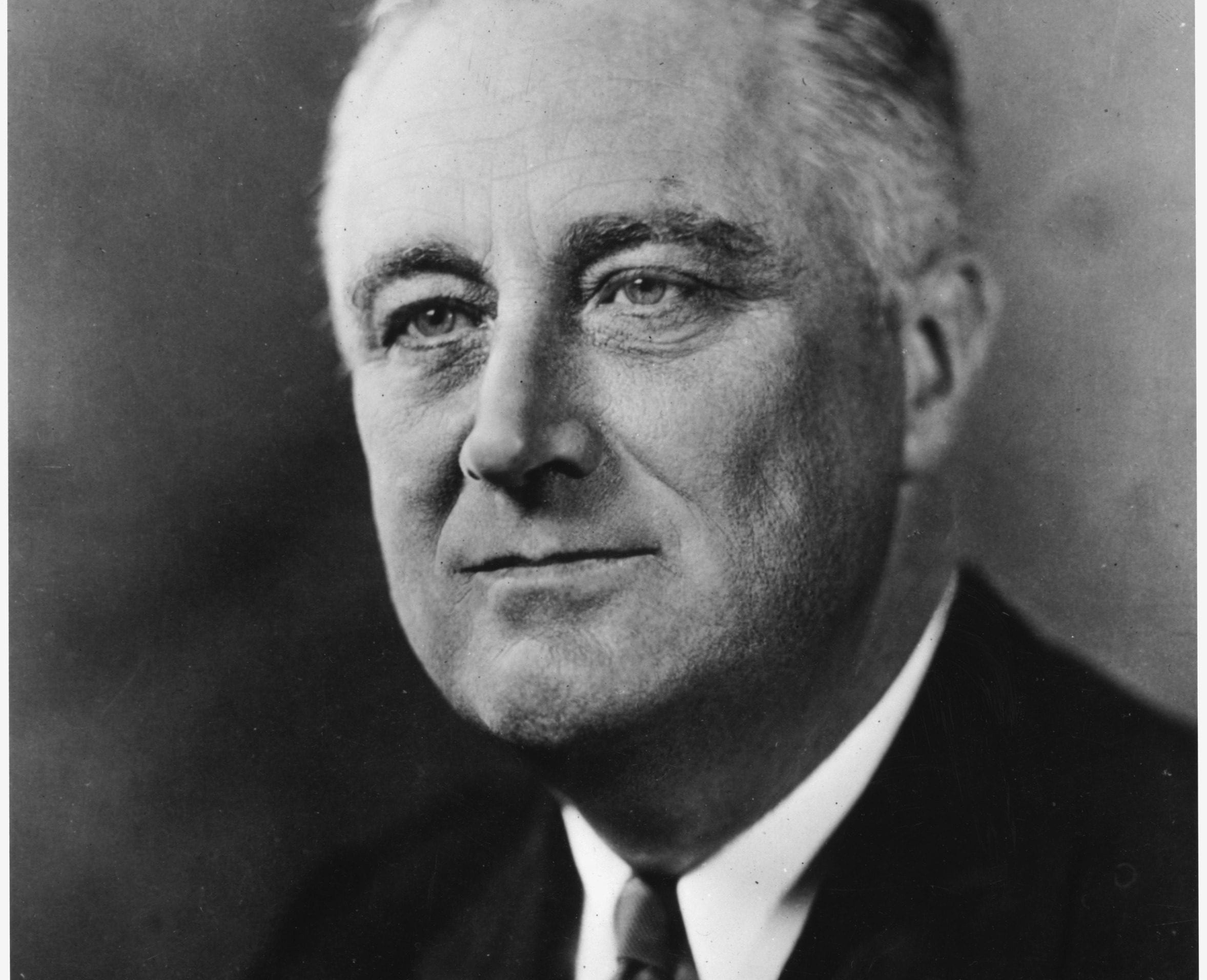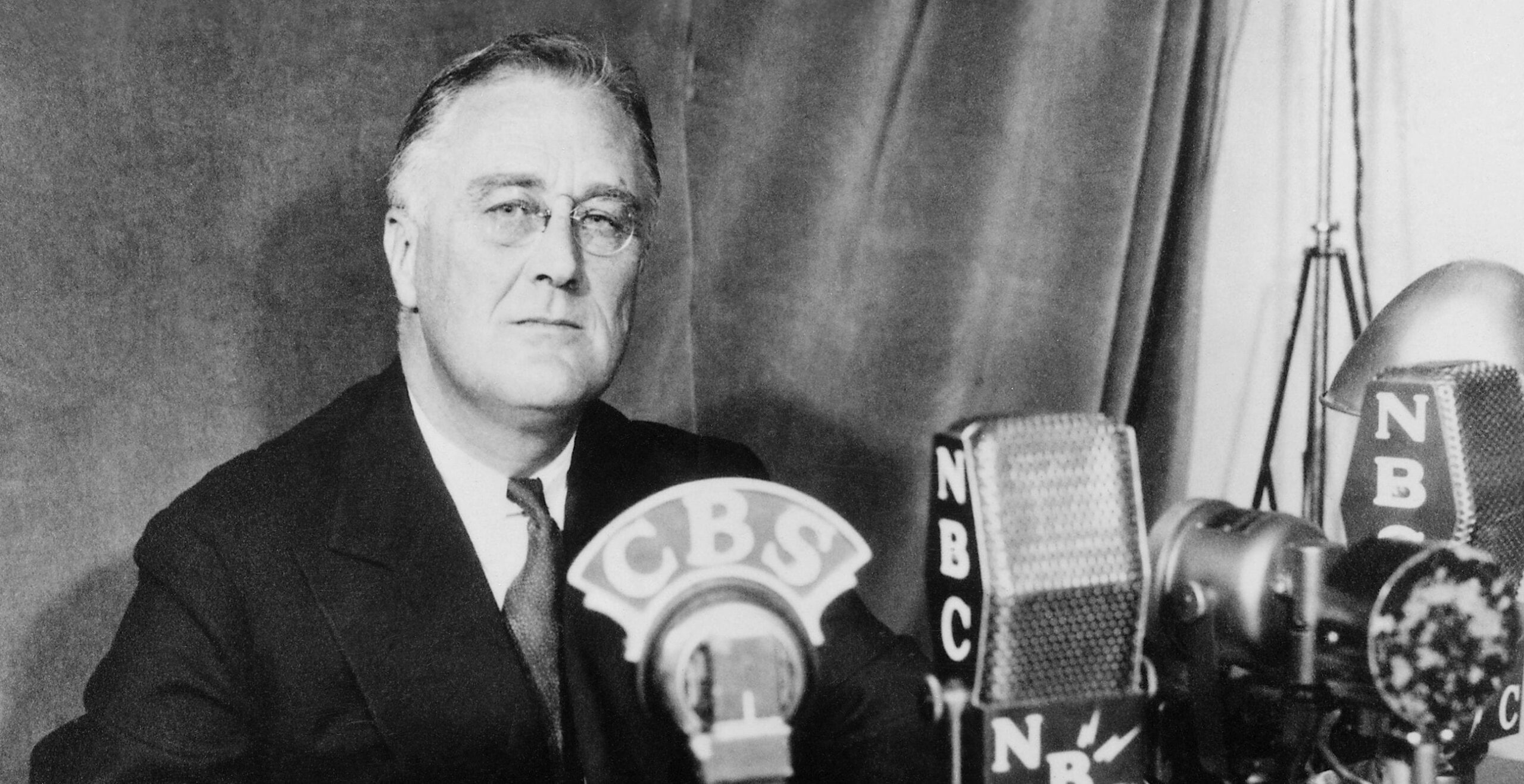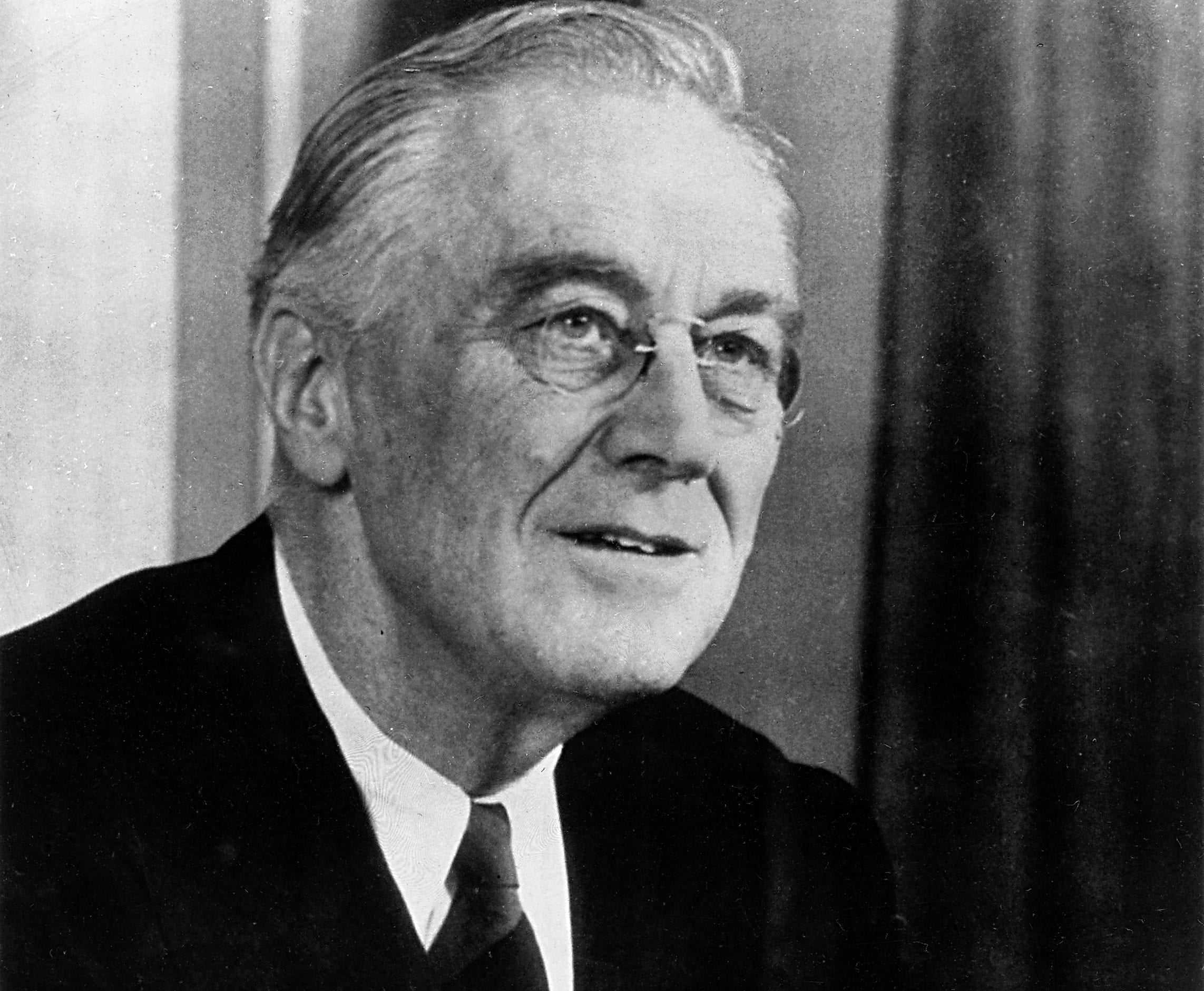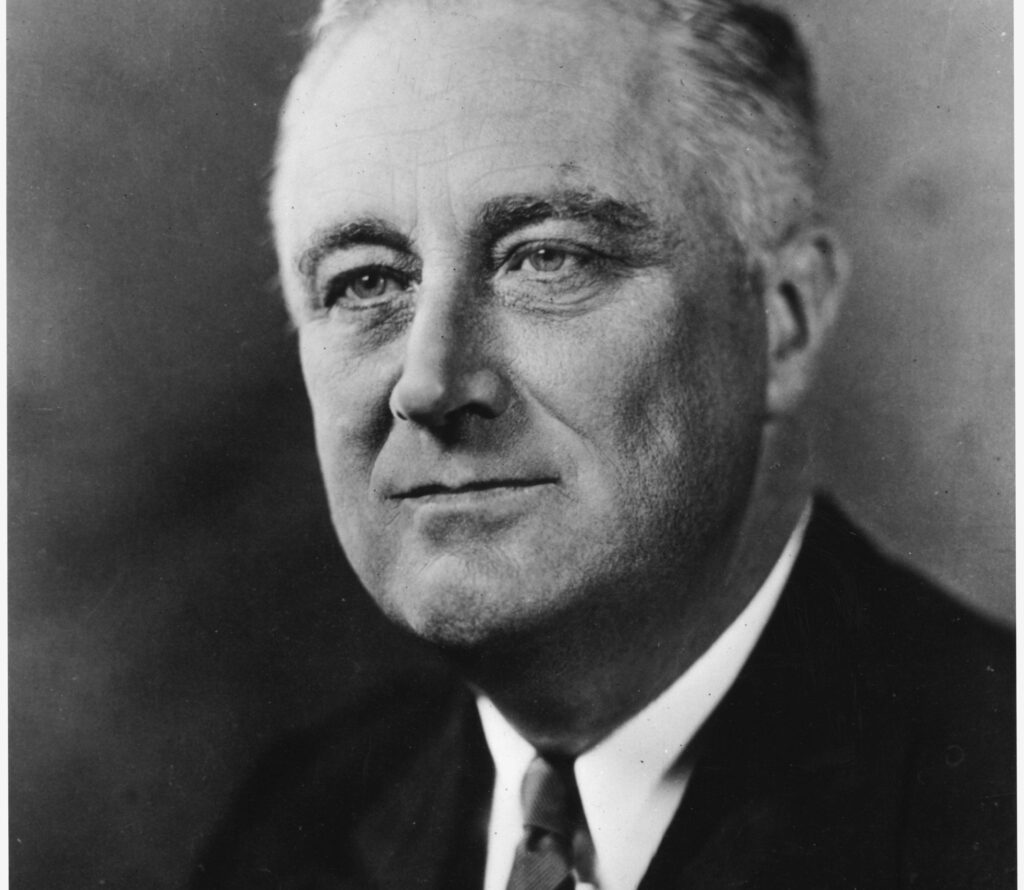
On this trip through the Nation I have talked to farmers, I have talked to miners, I have talked to industrial workers; and in all that I have seen and heard one fact has been clear as crystal- that they are part and parcel of a rounded whole, and that none of them can succeed in his chosen occupation if those in the other occupations fail in their prosperity. I have driven home that point.
Tonight, in this center of business, I give the same message to the business men of America—to those who make and sell the processed goods the Nation uses and to the men and women who work for them.…
What had the previous Administration in Washington done for four years? Nothing. Why? For a very fundamental reason. That Administration was not industrially-minded or agriculturally-minded or business-minded. It was high-finance-minded-manned and controlled by a handful of men who in turn controlled and by one financial device or another took their toll from the greater part of all other business and industry.
Let me make one simple statement. When I refer to high finance I am not talking about all great bankers, or all great corporation executives, or all multimillionaires—any more than Theodore Roosevelt, in using the term “malefactors of great wealth,” implied that all men of great wealth were “malefactors.” I do not even imply that the majority of them are bad citizens. The opposite is true.
Just in the same way, the overwhelming majority of business men in this country are good citizens and the proportion of those who are not is probably about the same proportion as in the other occupations and professions of life.
When I speak of high finance as a harmful factor in recent years, I am speaking about a minority which includes the type of individual who speculates with other people’s money—and you in Chicago know the kind I refer to—and also the type of individual who says that popular government cannot be trusted and, therefore, that the control of business of all kinds and, indeed, of Government itself should be vested in the hands of one hundred or two hundred all-wise individuals controlling the purse strings of the Nation.
High finance of this type refused to permit Government credit to go directly to the industrialist, to the business man, to the home owner, to the farmer. They wanted it to trickle down from the top, through the intricate arrangements which they controlled and by which they were able to levy tribute on every business in the land.
They did not want interest rates to be reduced by the use of Government funds, for that would affect the rate of interest which they themselves wanted to charge. They did not want Government supervision over financial markets through which they manipulated their monopolies with other people’s money.
And in the face of their demands that Government do nothing that they called “unsound,” the Government, hypnotized by its indebtedness to them, stood by and let the depression drive industry and business toward bankruptcy.
America is an economic unit. New means and methods of transportation and communications have made us economically as well as politically a single Nation.
Because kidnappers and bank robbers could in high-powered cars speed across state lines it became necessary, in order to protect our people, to invoke the power of the Federal Government. In the same way speculators and manipulators from across State lines, and regardless of State laws, have lured the unsuspecting and the unwary to financial destruction. In the same way across State lines, there have been built up intricate corporate structures, piling bond upon stock and stock upon bond—huge monopolies which were stifling independent business and private enterprise.
There was no power under Heaven that could protect the people against that sort of thing except a people’s Government at Washington. All that this Administration has done, all that it proposes to do—and this it does propose to do—is to use every power and authority of the Federal Government to protect the commerce of America from the selfish forces which ruined it.
Always, month in and month out, during these three and a half years, your Government has had but one sign on its desk—”Seek only the greater good of the greater number of Americans.” And in appraising the record, remember two things. First, this Administration was called upon to act after a previous Administration and all the combined forces of private enterprise had failed. Secondly, in spite of all the demand for speed, the complexity of the problem and all the vast sums of money involved, we have had no Teapot Dome.
We found when we came to Washington in 1933, that the business and industry of the Nation were like a train which had gone off the rails into a ditch. Our first job was to get it out of the ditch and start it up the track again as far as the repair shops. Our next job was to make repairs—on the broken axles which had gotten it off the road, on the engine which had been worn down by gross misuse.…
How did we do it? By a sound monetary policy which raised prices. By reorganizing the banks of the Nation and insuring their deposits. By bringing the business men of the Nation together and encouraging them to pay higher wages, to shorten working hours, and to discourage that minority among their own members who were engaging in unfair competition and unethical business practices.…
The train of American business is moving ahead.
But you people know what I mean when I say it is clear that if the train is to run smoothly again the cars will have to be loaded more evenly. We have made a definite start in getting the train loaded more evenly, in order that axles may not break again. For example, we have provided a sounder and cheaper money market and a sound banking and securities system. You business men know how much legitimate business you lost in the old days because your customers were robbed by fake securities or impoverished by shaky banks.
By our monetary policy we have kept prices up and lightened the burden of debt. It is easier to get credit. It is easier to repay. We have encouraged cheaper power for the small factory owner to lower his cost of production. We have given the business man cheaper transportation rates. But above all, we have fought to break the deadly grip which monopoly has in the past been able to fasten on the business of the Nation.
Because we cherished our system of private property and free enterprise and were determined to preserve it as the foundation of Our traditional American system, we recalled the warning of Thomas Jefferson that “widespread poverty and concentrated wealth cannot long endure side by side in a democracy.”
Our job was to preserve the American ideal of economic as well as political democracy, against the abuse of concentration of economic power that had been insidiously growing up among us in the past fifty years, particularly during the twelve years of preceding Administrations. Free economic enterprise was being weeded out at an alarming pace.
During those years of false prosperity and during the more recent years of exhausting depression, one business after another, one small corporation after another, their resources depleted, had failed or had fallen into the lap of a bigger competitor.
A dangerous thing was happening. Half of the industrial corporate wealth of the country had come under the control of less than two hundred huge corporations. That is not all. These huge corporations in some cases did not even try to compete with each other. They themselves were tied together by interlocking directors, interlocking bankers, interlocking lawyers.
This concentration of wealth and power has been built upon other people’s money, other people’s business, other people’s labor. Under this concentration independent business was allowed to exist only by sufferance. It has been a menace to the social system as well as to the economic system which we call American democracy.
There is no excuse for it in the cold terms of industrial efficiency.
There is no excuse for it from the point of view of the average investor.
There is no excuse for it from the point of view of the independent business man.
I believe, I have always believed, and I will always believe in private enterprise as the backbone of economic well-being in the United States.
But I know, and you know, and every independent business man who has had to struggle against the competition of monopolies knows, that this concentration of economic power in all-embracing corporations does not represent private enterprise as we Americans cherish it and propose to foster it. On the contrary, it represents private enterprise which has become a kind of private government, a power unto itself—a regimentation of other people’s money and other people’s lives.
Back in Kansas I spoke about bogey-men and fairy tales which the real Republican leaders, many of whom are part of this concentrated power, are using to spread fear among the American people. You good people have heard about these fairy tales and bogeymen too. You have heard about how antagonistic to business this Administration is supposed to be. You have heard all about the dangers which the business of America is supposed to be facing if this Administration continues.
The answer to that is the record of what we have done. It was this Administration which saved the system of private profit and free enterprise after it had been dragged to the brink of ruin by these same leaders who now try to scare you.…
The struggle against private monopoly is a struggle for, and not against, American business. It is a struggle to preserve individual enterprise and economic freedom.
I believe in individualism. I believe in it in the arts, the sciences and professions. I believe in it in business. I believe in individualism in all of these things—up to the point where the individualist starts to operate at the expense of society. The overwhelming majority of American business men do not believe in it beyond that point. We have all suffered in the past from individualism run wild. Society has suffered and business has suffered. The people of America have no quarrel with business. They insist only that the power of concentrated wealth shall not be abused.
We have come through a hard struggle to preserve democracy in America. Where other Nations in other parts of the world have lost that fight, we have won.
The business men of America and all other citizens have joined in a firm resolve to hold the fruits of that victory, to cling to the old ideals and old fundamentals upon which America has grown great.
This Challenge to Liberty
October 30, 1936
Conversation-based seminars for collegial PD, one-day and multi-day seminars, graduate credit seminars (MA degree), online and in-person.
